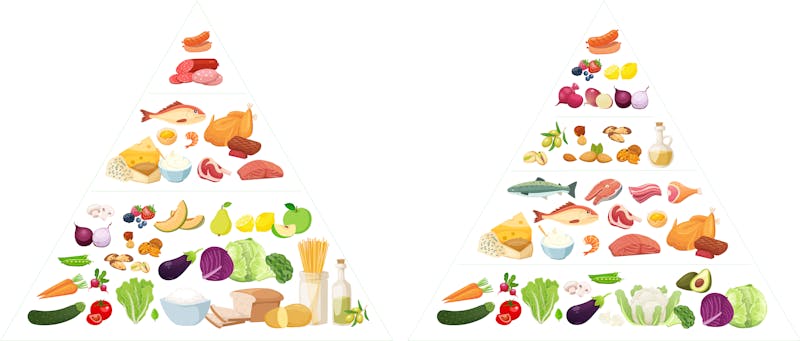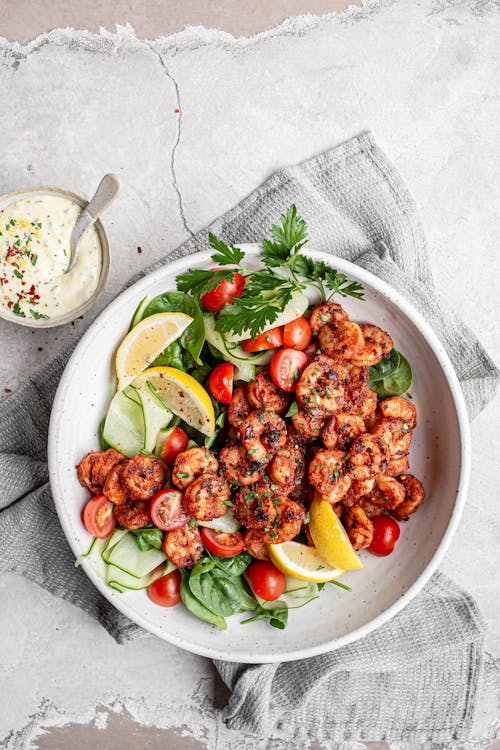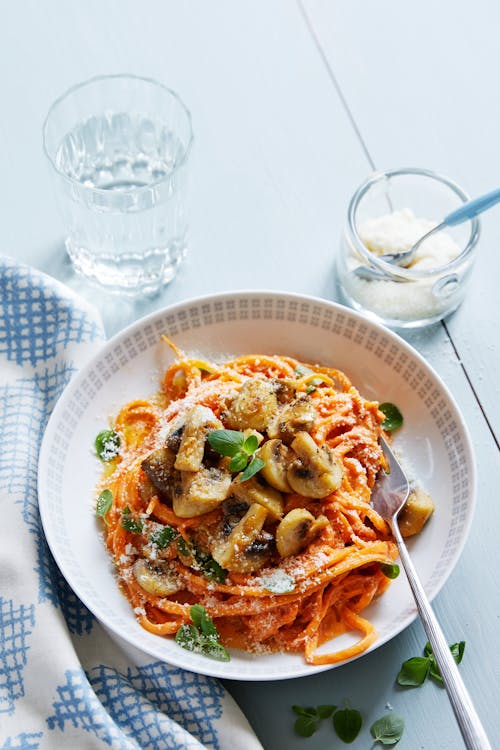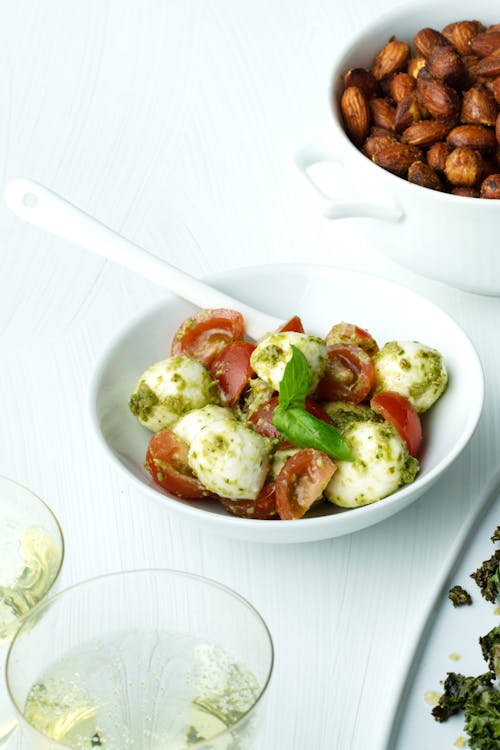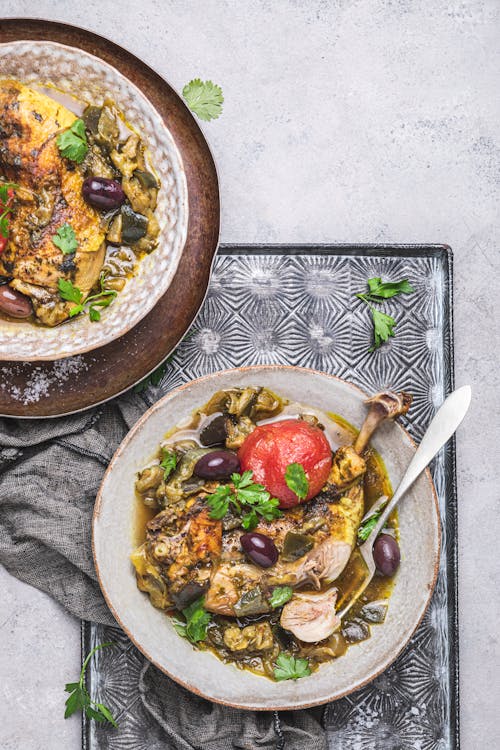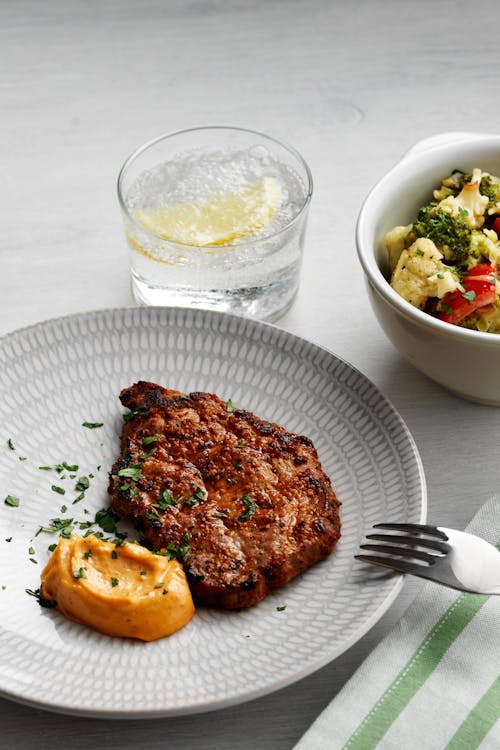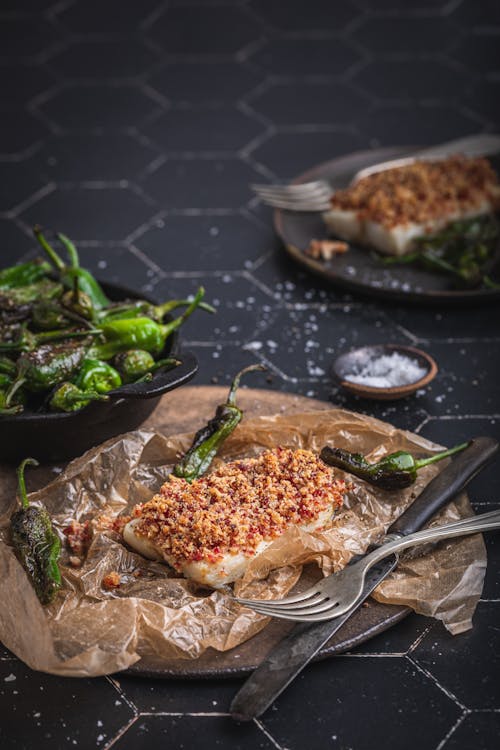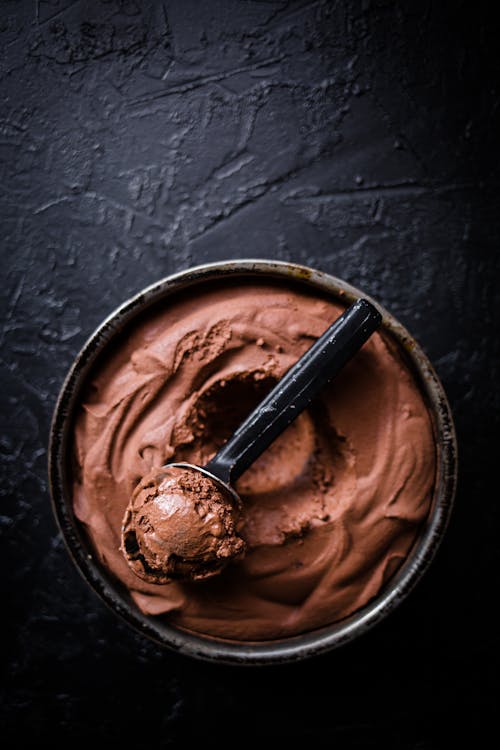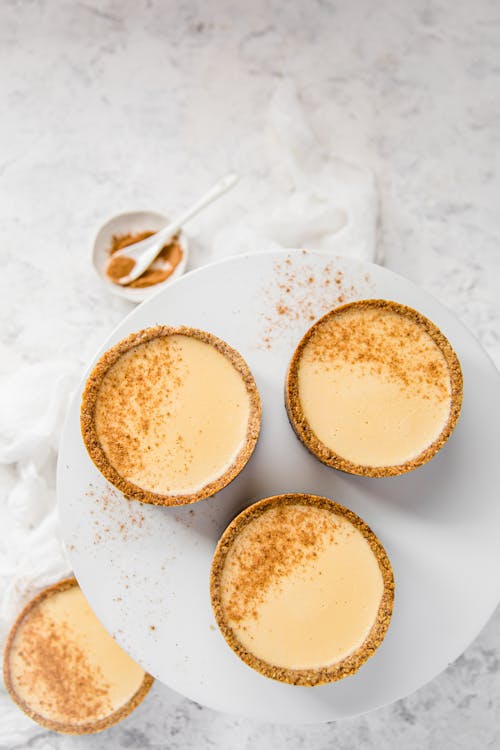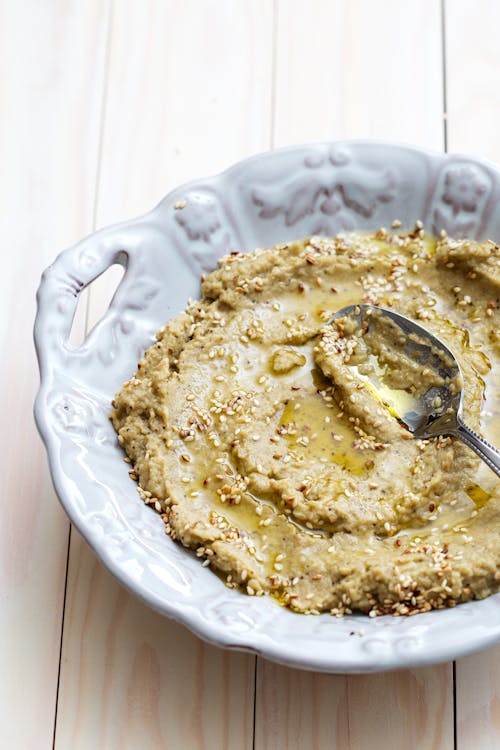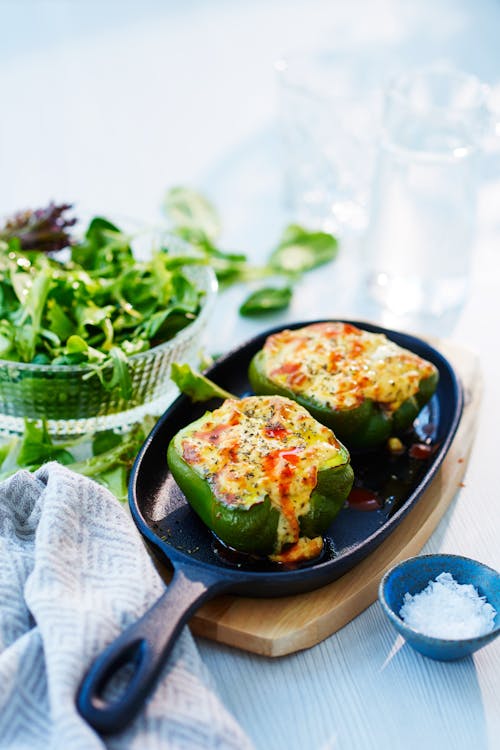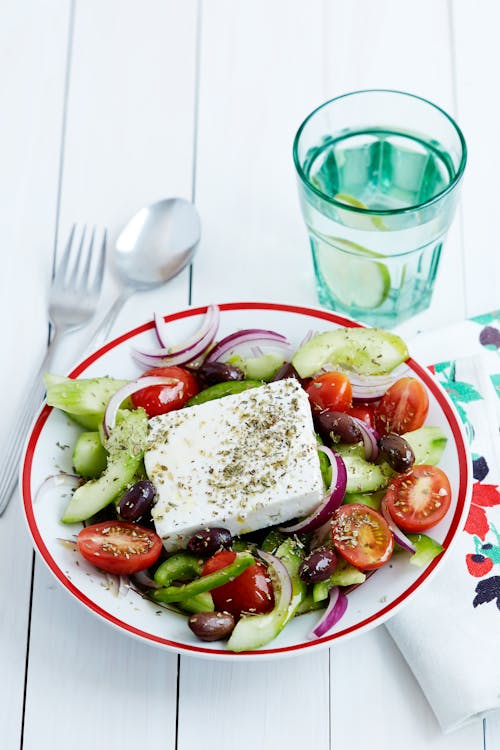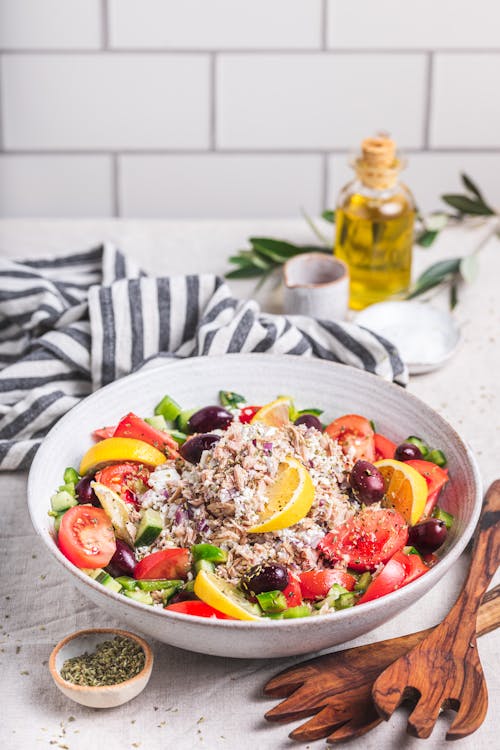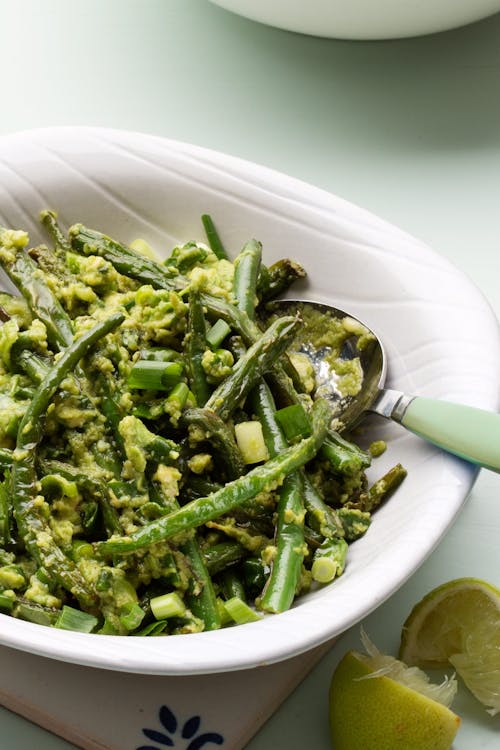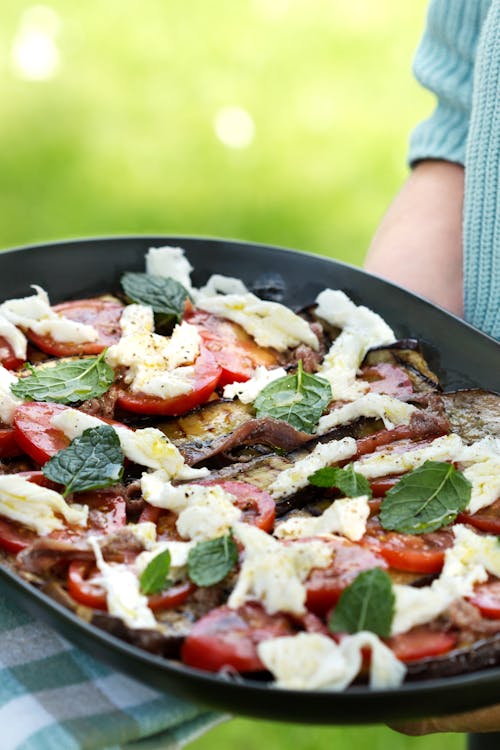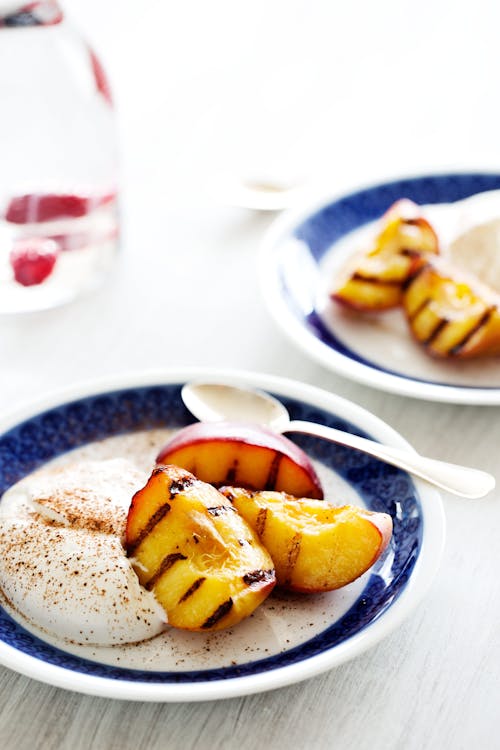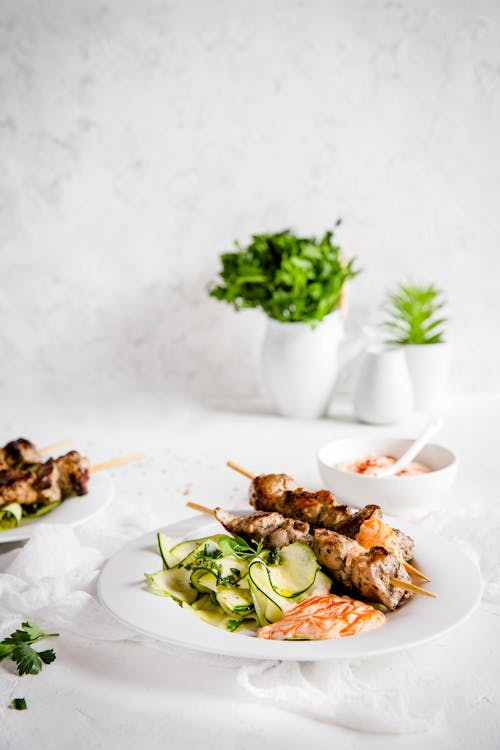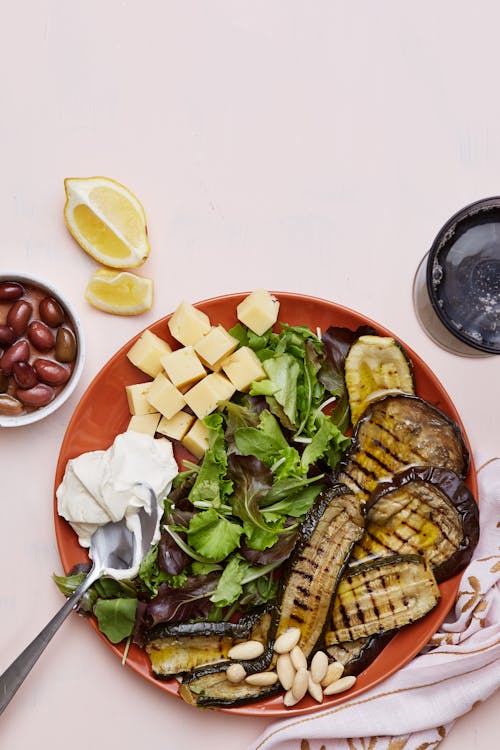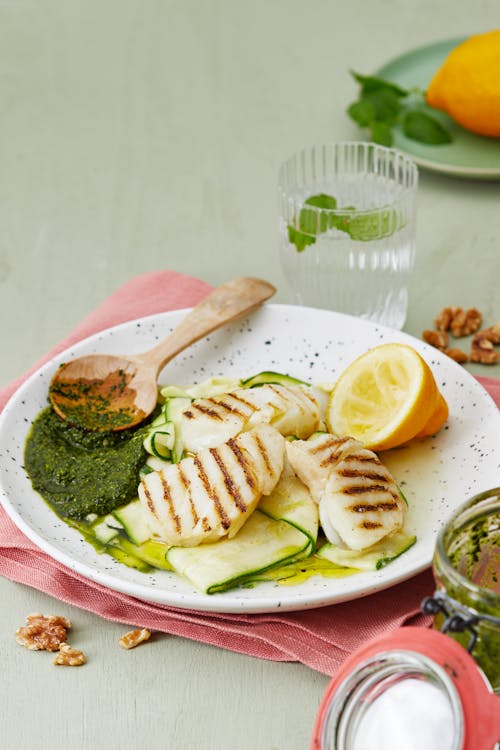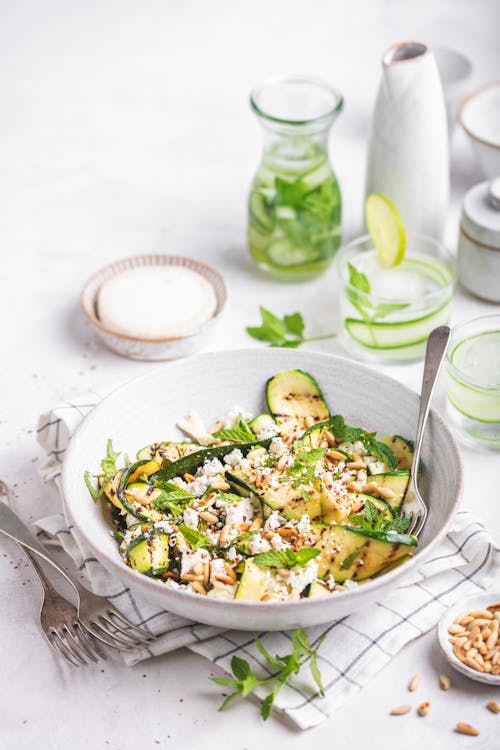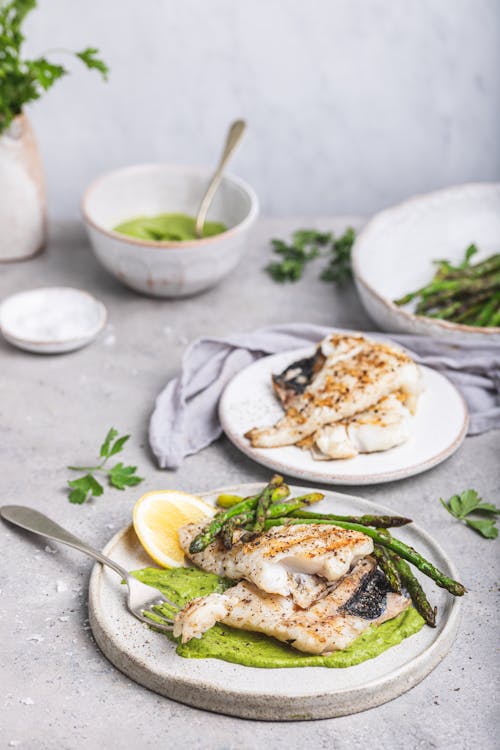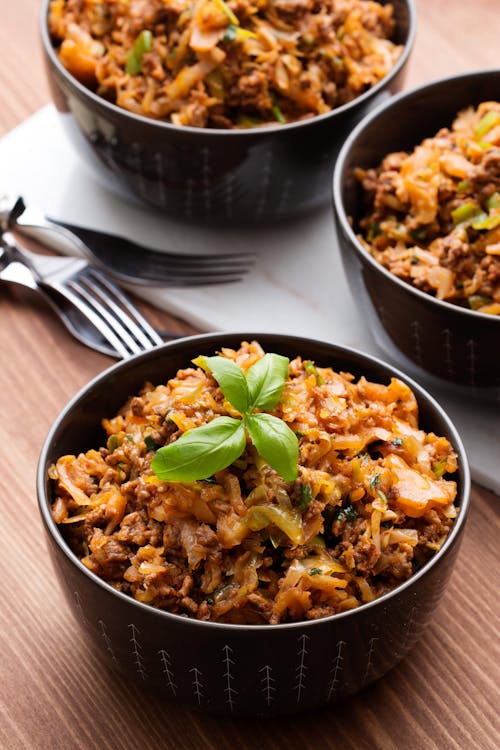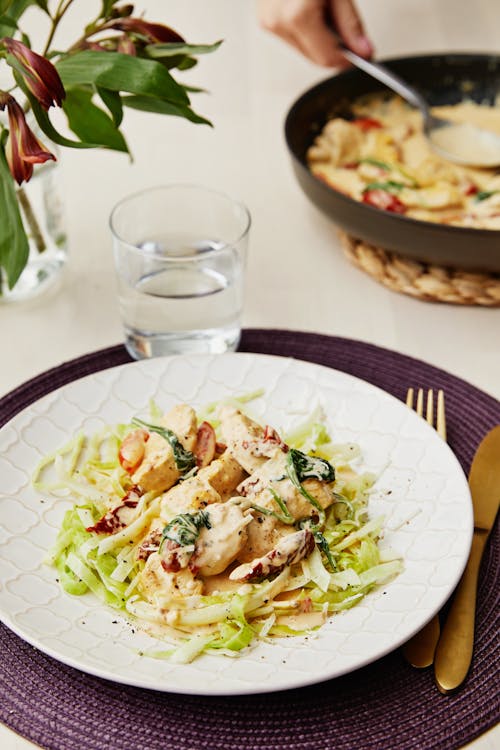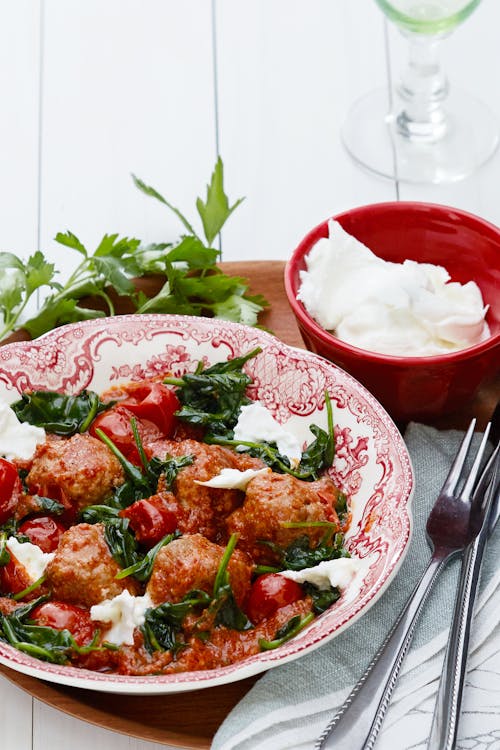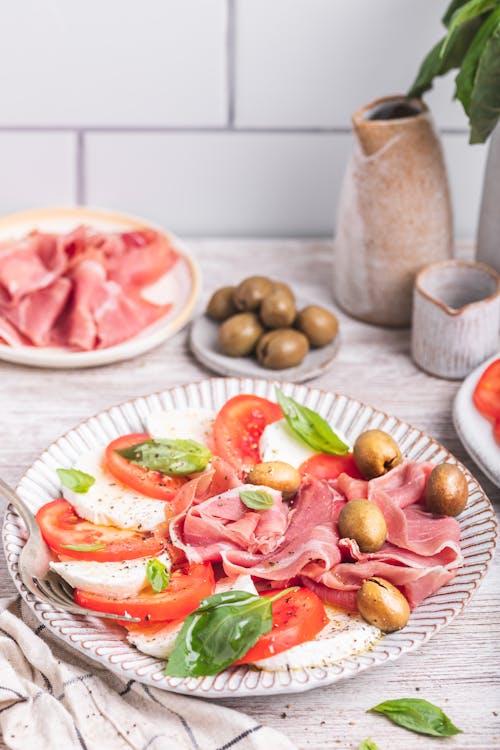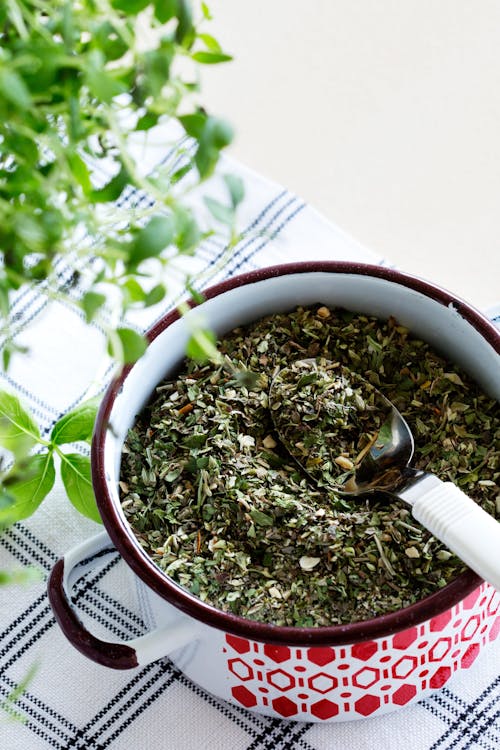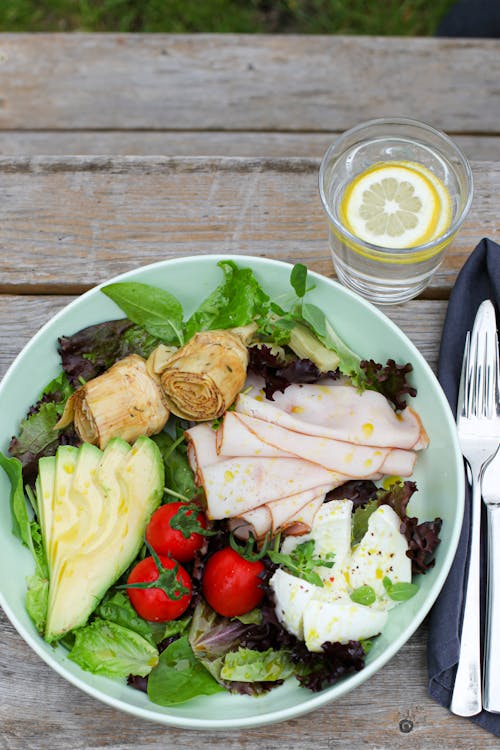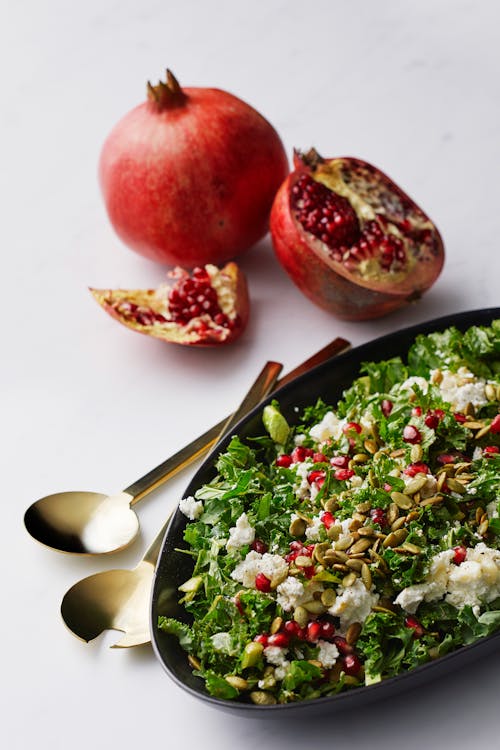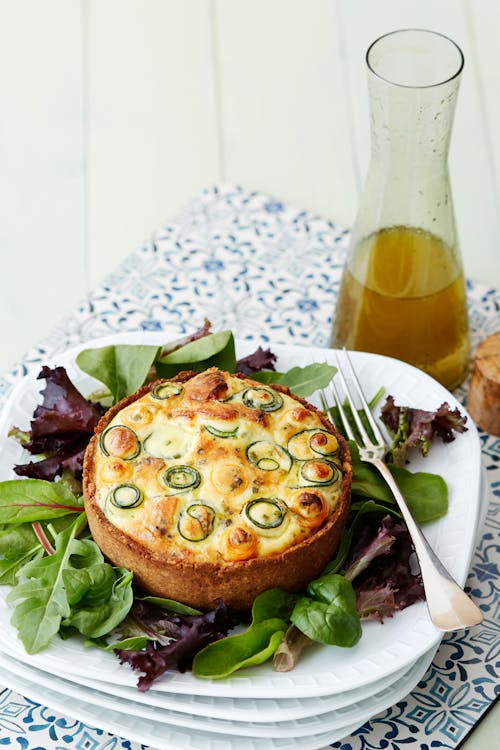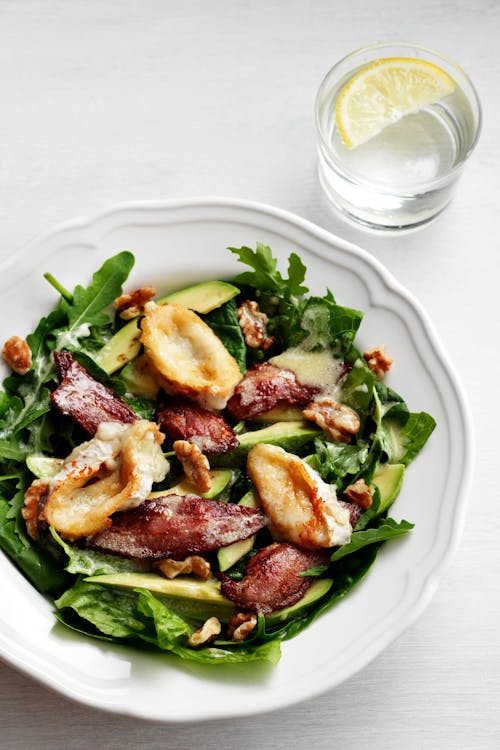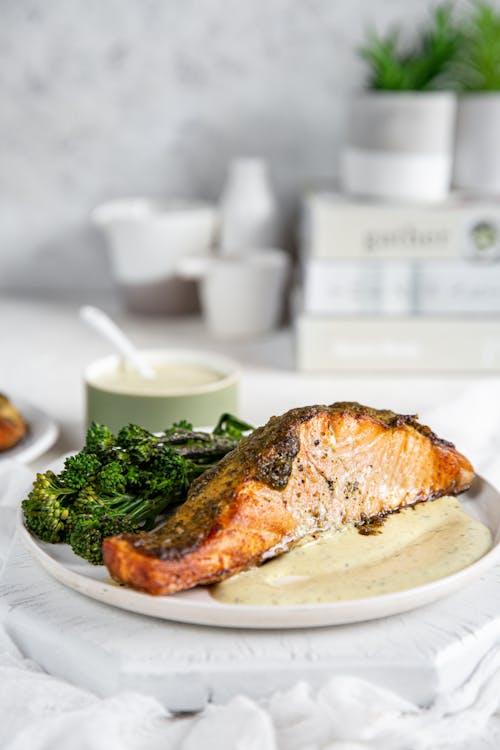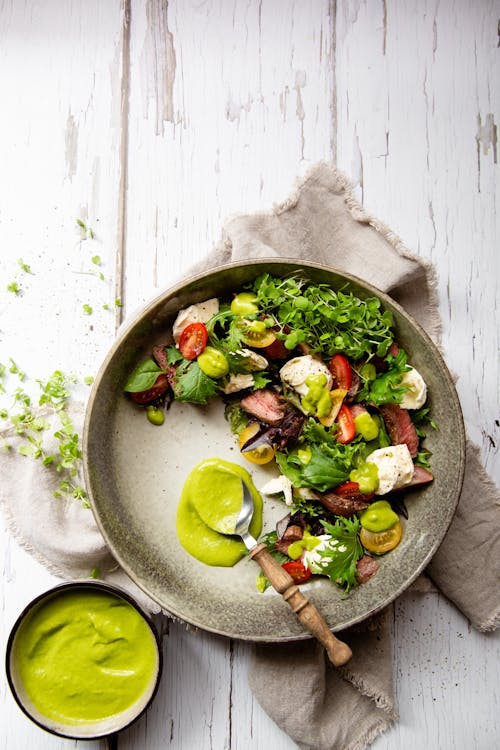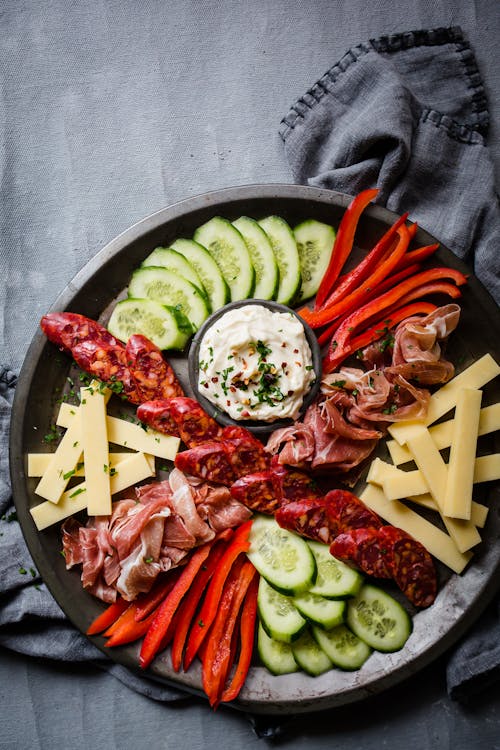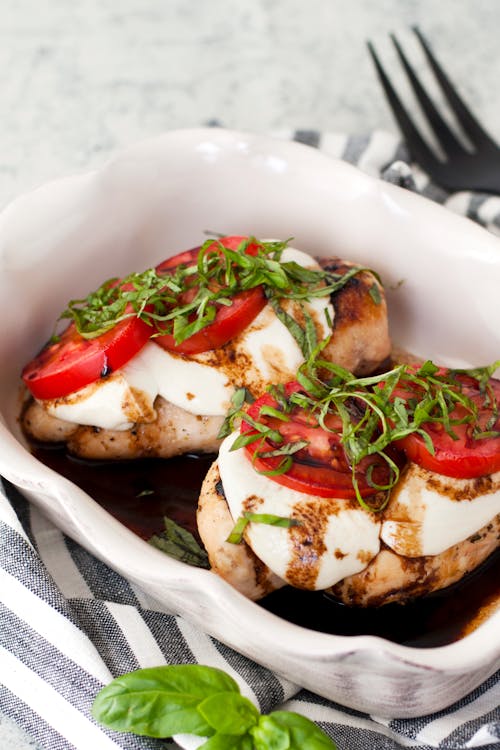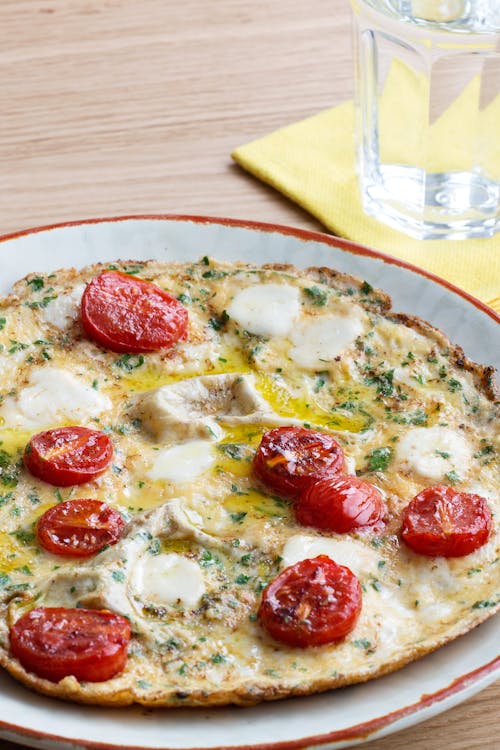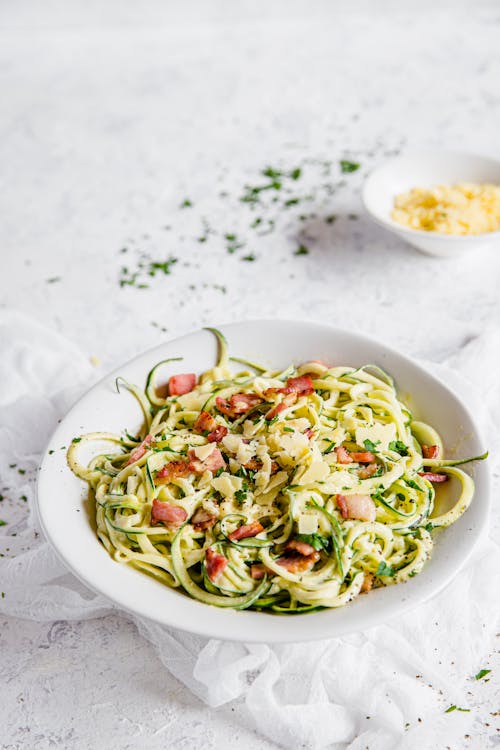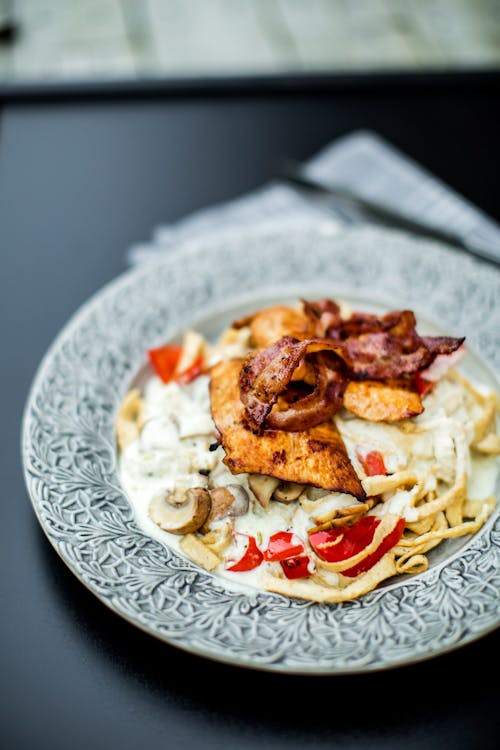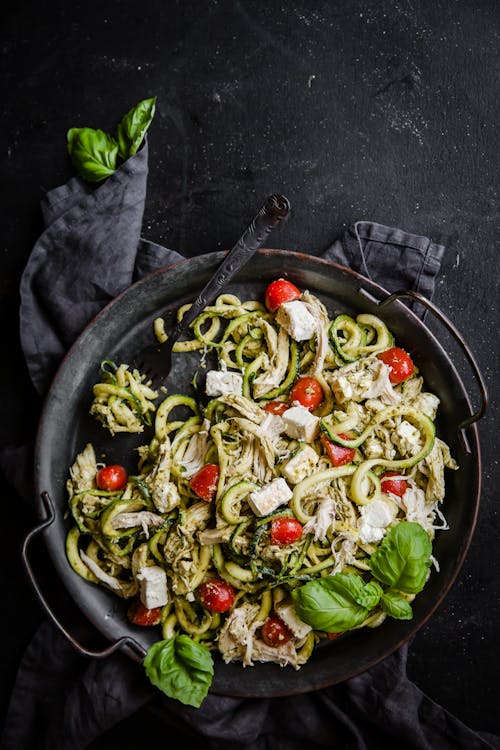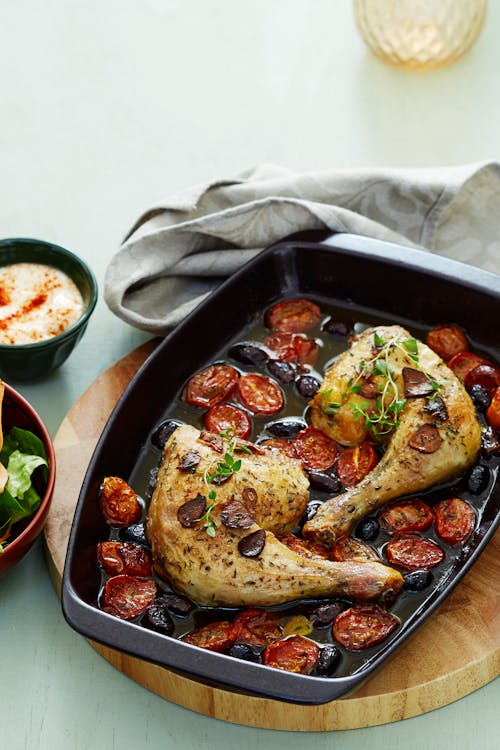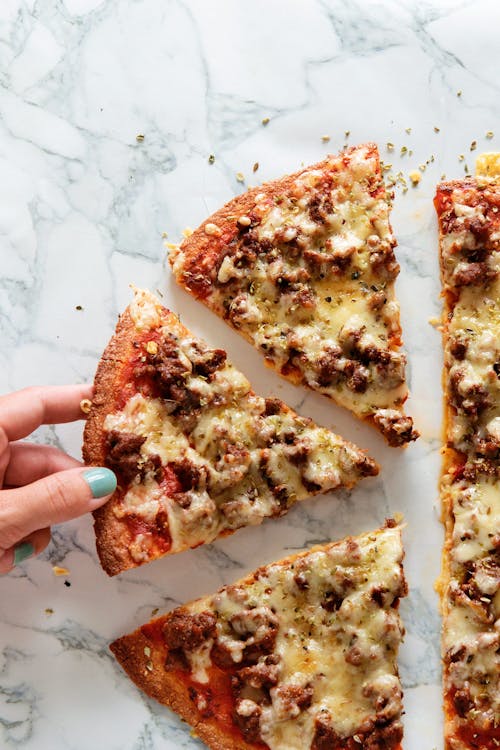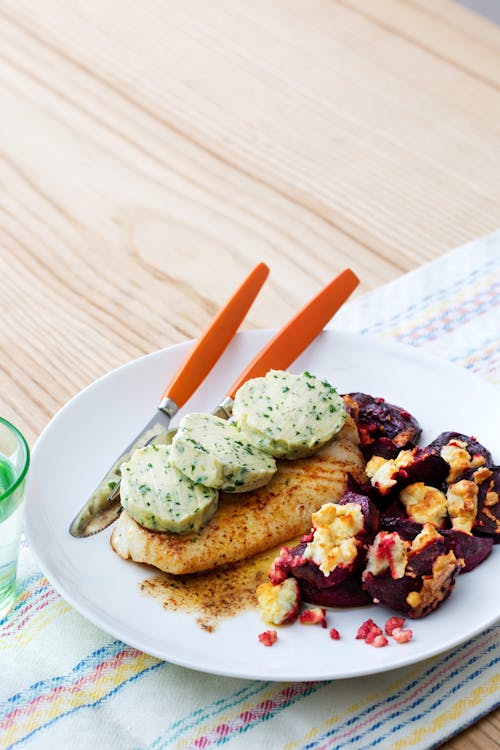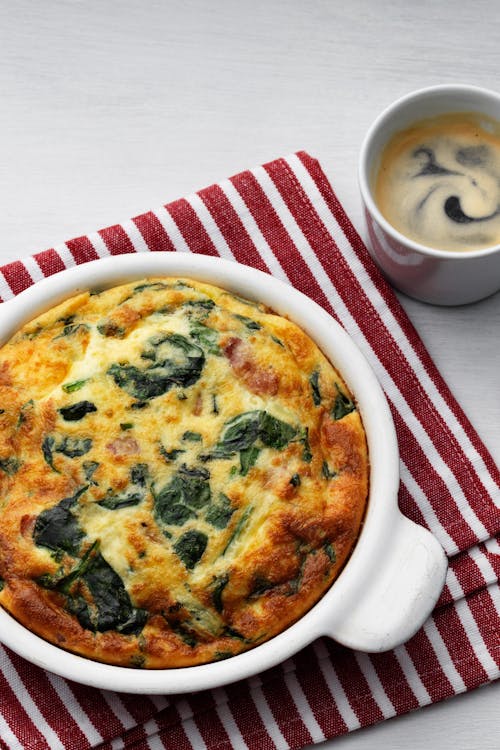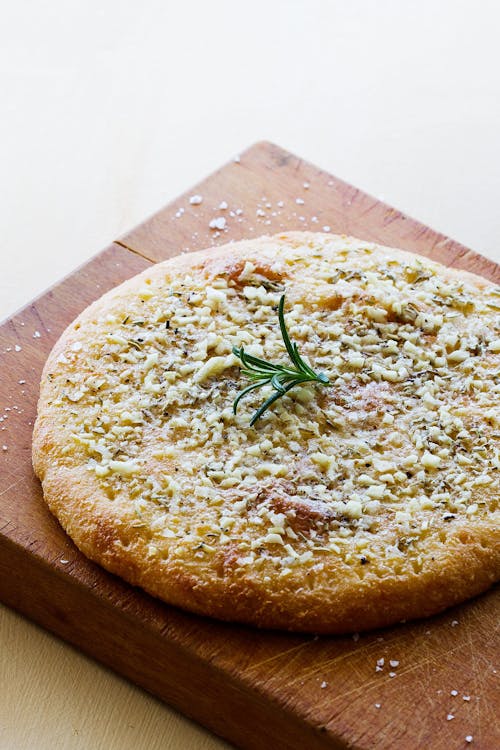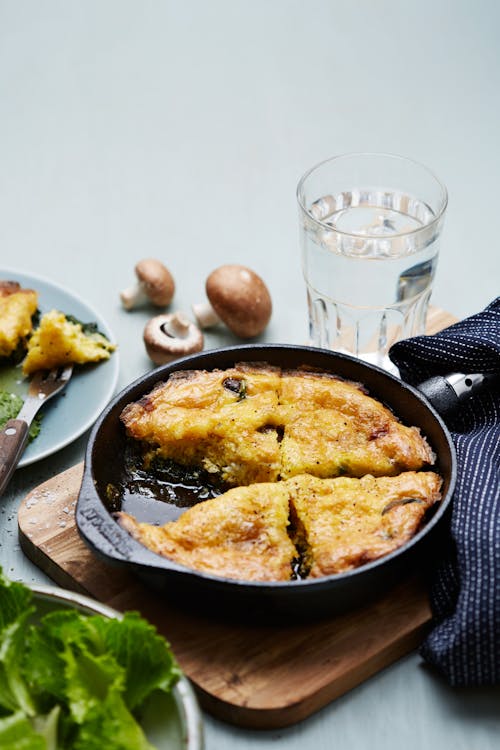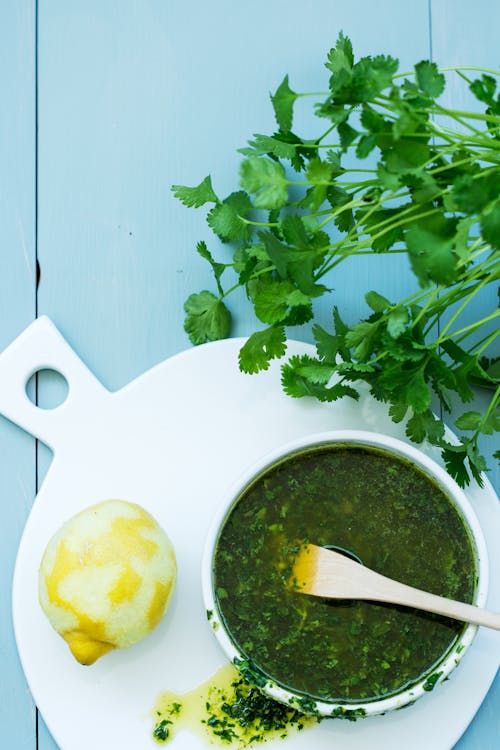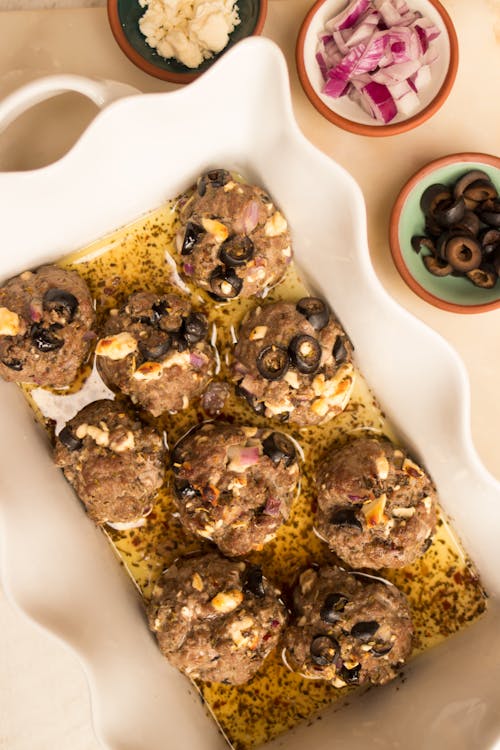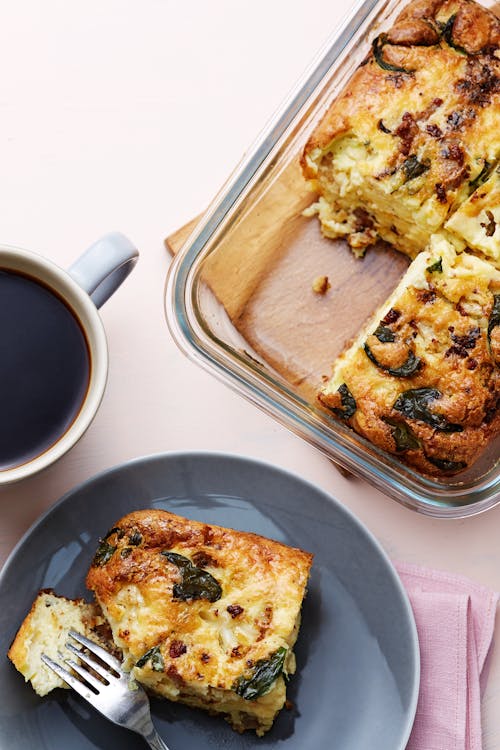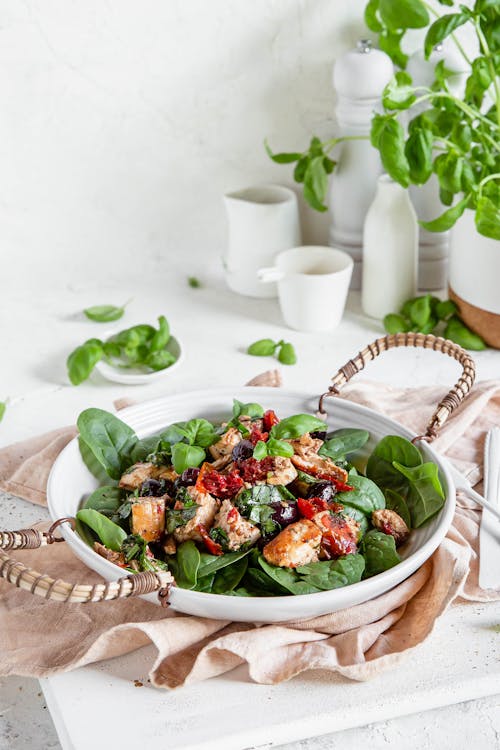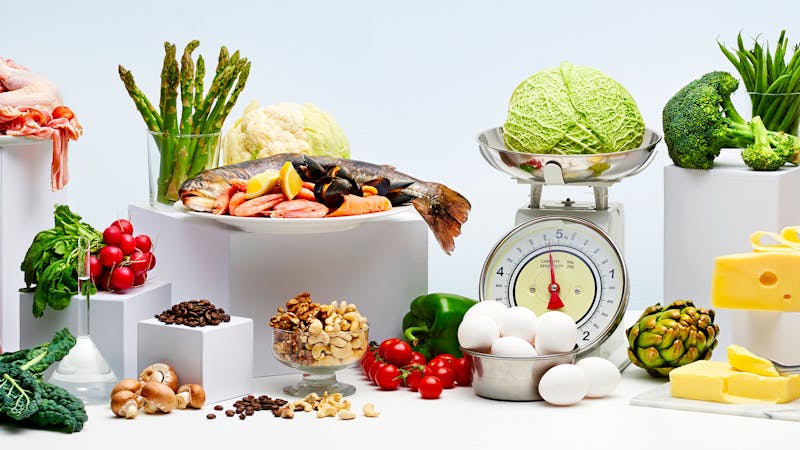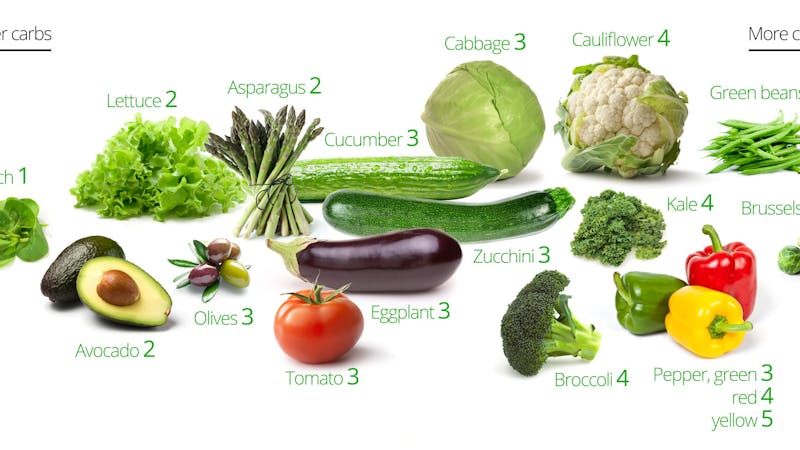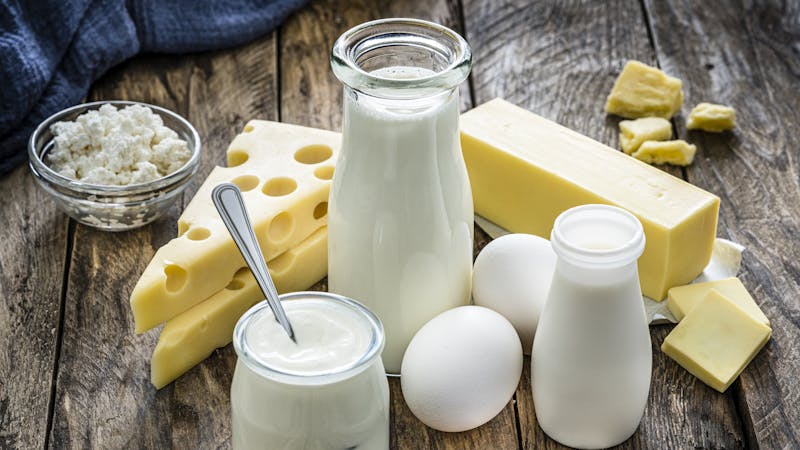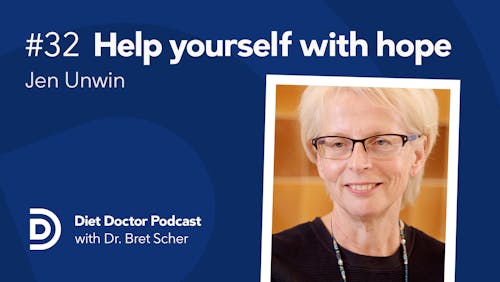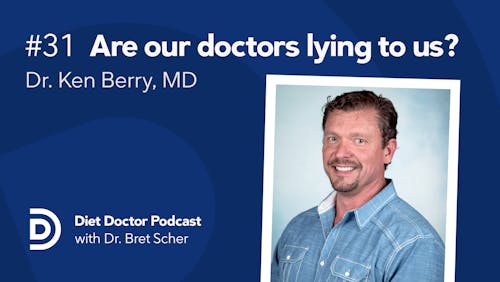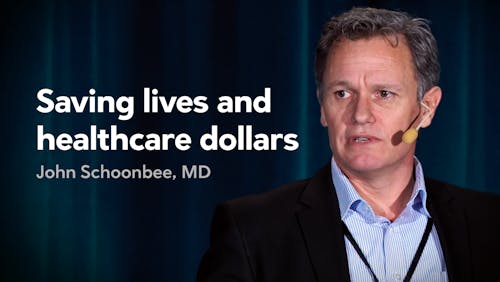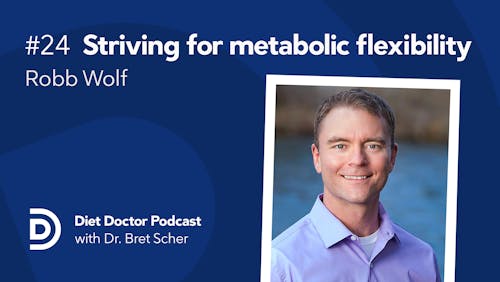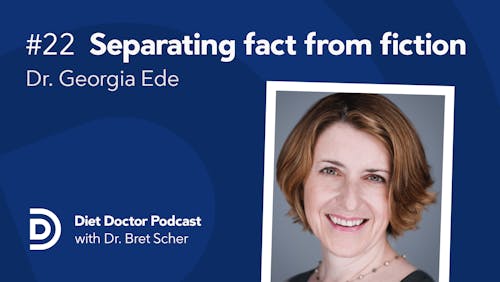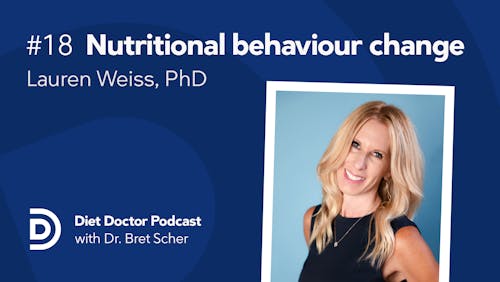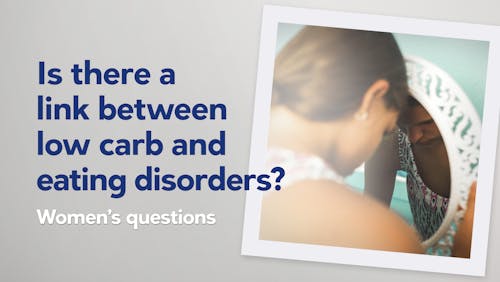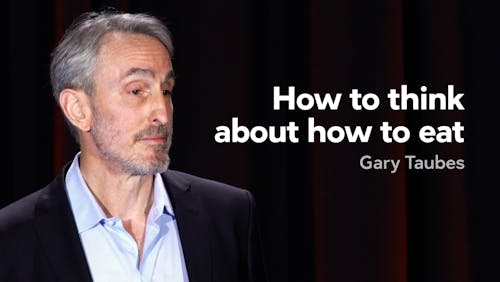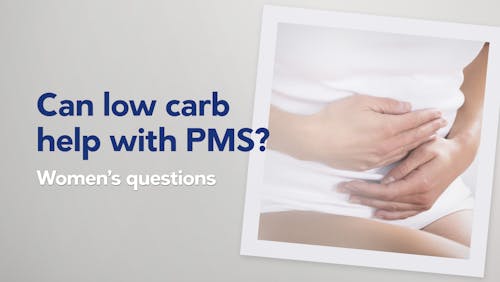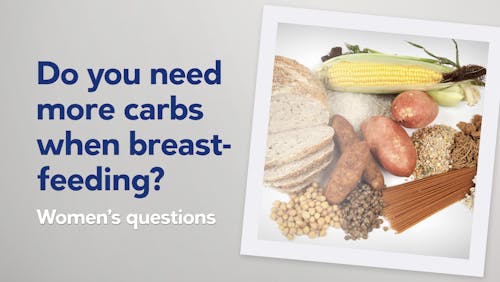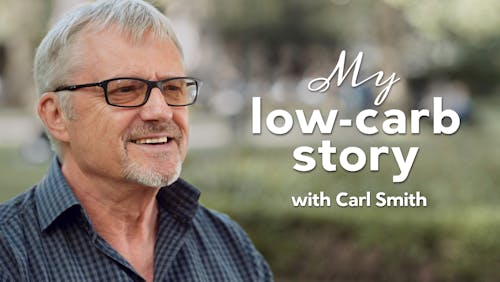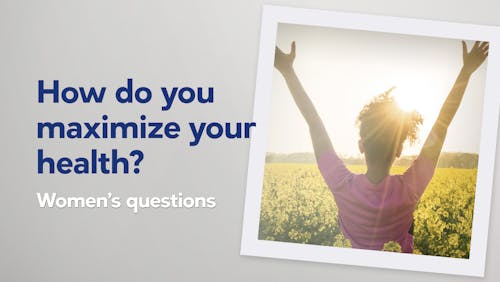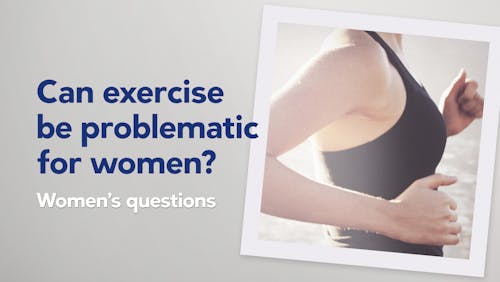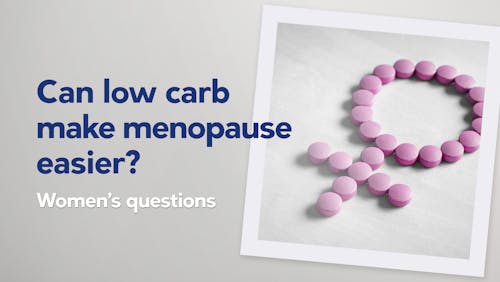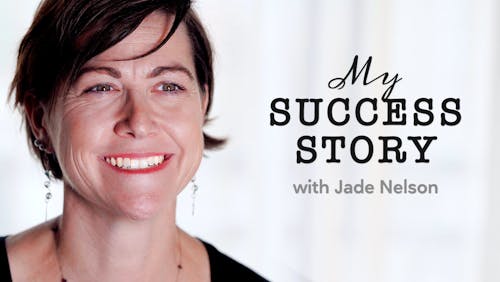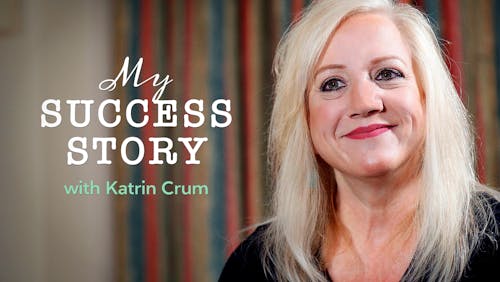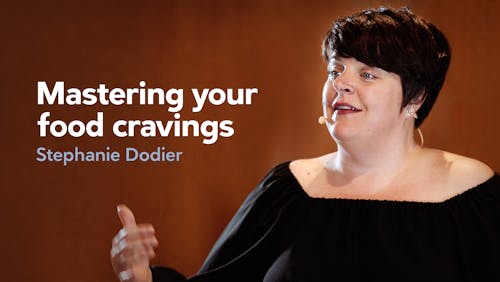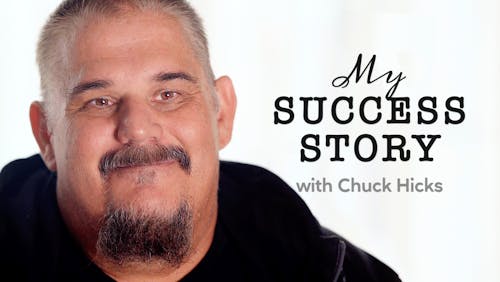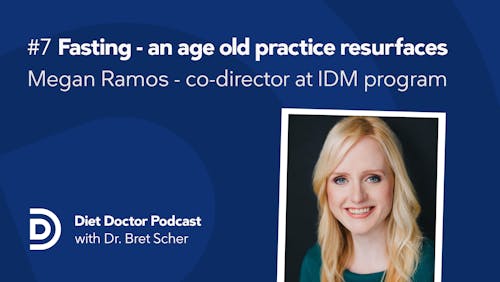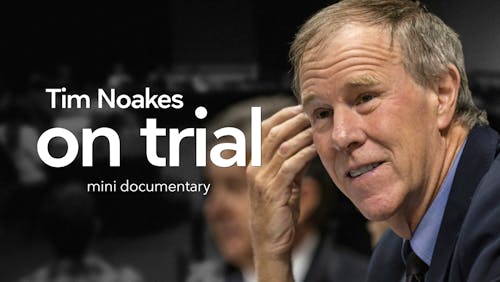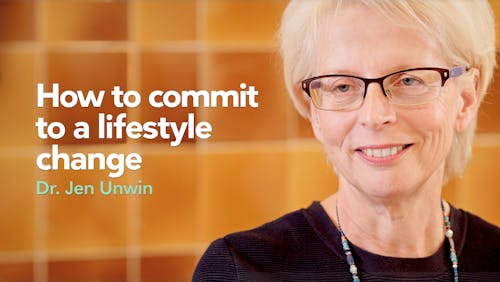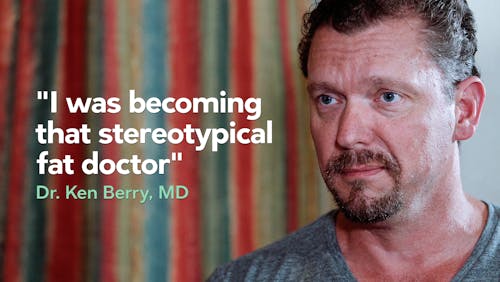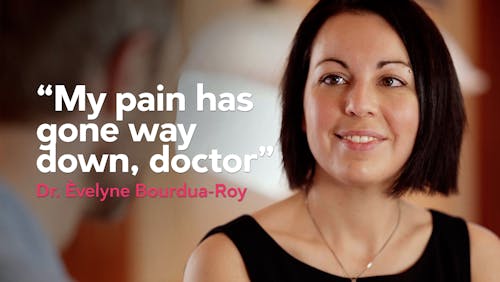Mediterranean diet 101:
a complete guide
and meal plan
So, what is the Mediterranean diet? Is this a flavorful way of eating healthy?
A Mediterranean diet can provide health benefits, according to researchers. And eating a low-carb Mediterranean diet may provide even more benefits when it comes to losing weight and controlling diabetes.
In this guide, you’ll learn first about how to do a low-carb Mediterranean diet. We’ll also show you how you can add carbs back for a more typical Mediterranean diet, at a carb level that works best for you.
Plus, you’ll get tips about what to eat, along with meal plan examples for low-carb and higher carb Mediterranean diets.
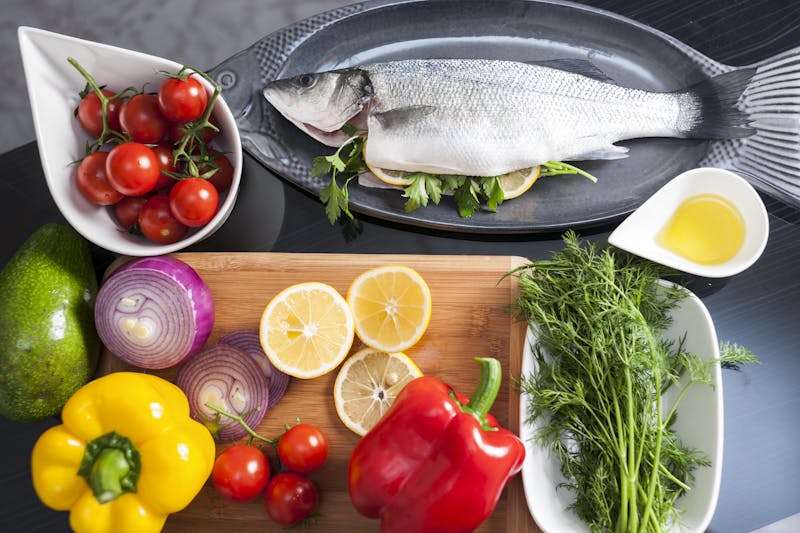
Key takeaways
What do you eat on a low-carb Mediterranean diet? If you want to lose weight or improve your blood sugar levels, consider eating a low-carb version that eliminates grains, potatoes, rice, fruit, and other higher-carb foods without sacrificing the delicious, unique flavors of Mediterranean cuisine. Learn moreWhat do you eat on a standard Mediterranean diet? It’s easy to follow. Simply load up on colorful produce, whole grains, and other plants; include a protein source at each meal; add generous amounts of olive oil to your food; and enjoy red wine in moderation, if desired. Learn more
What are the potential health benefits of eating a Mediterranean diet? A Mediterranean diet is rich in fresh, minimally processed foods. Research suggests that eating this way may possibly help people improve their health. Learn more
1. What is the Mediterranean diet?
The Mediterranean diet is based on the traditional cuisine of people who live in the countries bordering the Mediterranean Sea, especially Italy, Greece, and Spain.
Though Mediterranean diets vary from country to country, they share common features. For instance, they all emphasize fresh, local, minimally processed foods.
While there isn’t just one type of Mediterranean diet, most include large amounts of fresh seafood, vegetables, fruits, whole grains, legumes, and olive oil.1
You can easily modify a typical Mediterranean diet to make it low carb.
2. The Mediterranean diet pyramids
On a Mediterranean diet, you can enjoy a wide variety of fresh and tasty foods. Here are two food pyramids: on the right is a low-carb Mediterranean diet; on the left is a typical Mediterranean diet.2
You can see that the big difference between the two is that the low-carb version does not have the bread, grains, and starchy vegetables. It also only has low-sugar fruit like berries.
In both cases, the pyramid is designed to help guide food choices with no set-in-stone rules for how much to eat. Instead, you decide how much to eat based on your hunger, weight goals, and preferences.3
3. What to eat on a low-carb Mediterranean diet
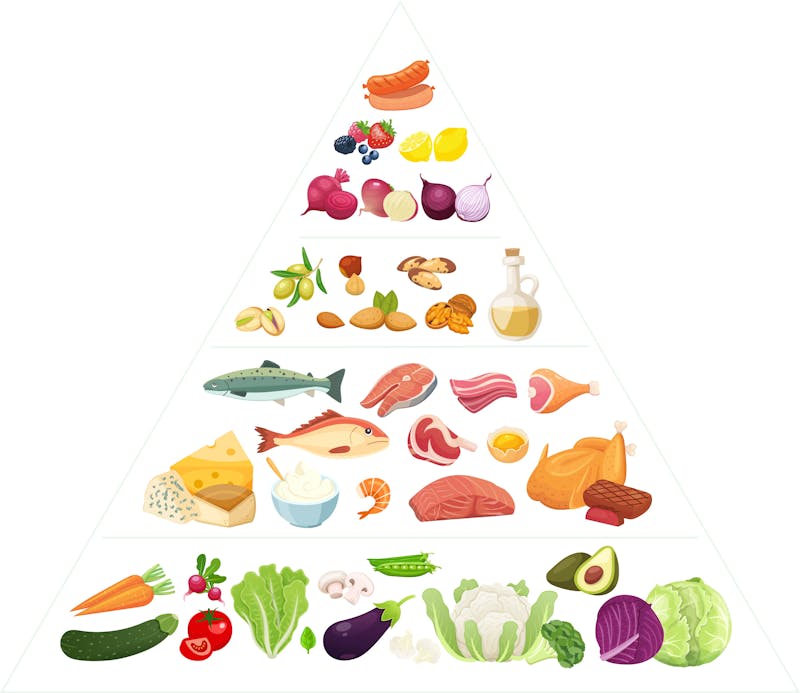



A low-carb Mediterranean diet combines two popular eating patterns: carb reduction and the fresh foods found in the Mediterranean region.
Strong evidence shows that low-carb diets can help people lose weight and control blood sugar.4
When eating a low-carb Mediterranean diet, you simply avoid the higher-carb foods such as bread, rice, potatoes, beets, and high-sugar fruit. (You can enjoy some of these occasionally in small quantities — and we’ll talk about how to add them back in later in this guide.)
The good news is that on the low-carb Mediterranean diet, you still enjoy generous servings of delicious proteins, vegetables, and olive oil at every meal.
Foods to eat
Eat at most meals:
-
- Protein: Seafood, poultry, eggs, cheese, or yogurt (include fish or shellfish at least twice a week)
- Above-ground vegetables, especially leafy greens, tomatoes, bell peppers, cucumbers, squash, greens, artichokes, eggplant, and broccoli
- Olive oil, olives, nuts, or seeds
- Herbs and spices
- Berries: one serving per day
Serving sizes
A half-cup serving of fruits or vegetables is about the size of a tennis ballEat in smaller amounts:
- Red meat (twice per week)
- Processed or cured meat, such as ham or prosciutto (once per week)
- Below-ground vegetables like carrots or onions (up to one-half cup a few times a week)
- Legumes (up to one-half cup a few times a week)
- Lemons, limes: in small amounts for cooking or to flavor beverages
Foods to avoid:
- Whole grains found in foods, such as: bread, pasta, cereal, quinoa, and couscous, etc.
- Potatoes
- Sugar, honey, syrup
- Foods with added sugar (candy, cookies, cakes, ice cream, and other sweets)
- Foods made with white flour (bread, pasta, cereal)
- Sweetened beverages
- Fruit juice
- Fruits: bananas, grapes, and most other fruit besides berries
What to drink
Drink still or sparkling water, with a squeeze of lemon or lime. You can also enjoy coffee or tea with a splash of milk or cream.
Many people include red wine at meals as part of their Mediterranean lifestyle. If you want to drink alcohol on a low-carb Mediterranean diet, choose dry rather than sweet red wine.
Studies suggest wine may reduce some heart disease risk factors. 5
If you are drinking wine, aim for a daily maximum of two glasses of wine if you’re a man or one glass if you’re a woman.6
Mediterranean low-carb recipes
Tips for dining out
Eating a low-carb Mediterranean diet in restaurants is a breeze:
- Choose grilled or baked, unbreaded seafood or meat with vegetables or a side salad.
- Request that your food be cooked with olive oil, and ask for olive oil to dress your salad.
- Request a double portion of vegetables to replace potatoes, rice, or other starchy sides.
- Order water or dry red wine to drink.
5. What to eat on a standard Mediterranean diet
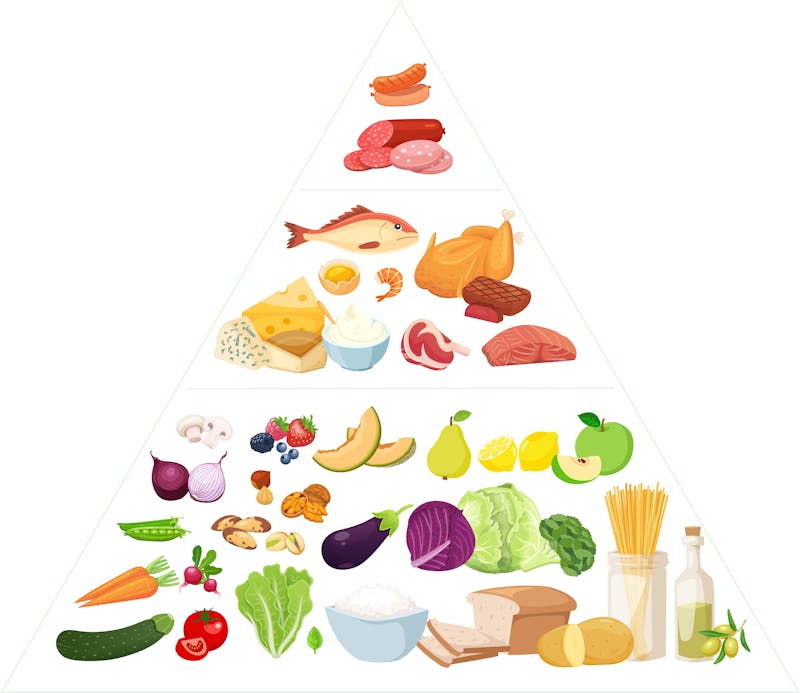



If you have little or no weight to lose and do not have type 2 diabetes, you can include more carbs at your Mediterranean meals. This means you can eat some potatoes, brown rice, unrefined grains, or whole wheat bread. You can find the level of carbs that is right for you.
Adding carbohydrates will make your meals more typical of the standard Mediterranean diet. It will still be full of fresh, minimally processed food that is much healthier than the standard, highly-processed American diet.
If you find that when you eat more carbs you crave more carbs, that may be a sign that you have exceeded your personal carb threshold and should cut back.
Eat at most meals:
- Protein: Legumes (beans, chickpeas, lentils), seafood, poultry, eggs, cheese, or yogurt; include fish or shellfish at least twice a week
- Vegetables: All types, especially tomatoes, bell peppers, cucumbers, squash, greens, artichokes, eggplant, and broccoli
- Whole grains and starchy vegetables, such as whole-grain pasta or cereal, brown or wild rice, quinoa, couscous, and potatoes, etc.
- Fruits: All types
- Olive oil, olives, nuts, or seeds
- Herbs and spices
Eat less frequently:
- Red meat (twice per week)
- Processed meat, such as ham or prosciutto (once per week)
Foods to avoid:
- Fruit juice
- Foods with added sugar (candy, cookies, cakes, ice cream, and other sweets)
- Foods made with white flour (white bread, white pasta, white rice)
- Sweetened beverages
What to drink
Water is always a great beverage choice, whether still or sparkling. Coffee and tea with milk or cream are also fine.
Again, good news for wine lovers. Red wine at meals is typical of many Mediterranean diets, and studies suggest it may reduce some heart disease risk factors, as noted above. 7 However, it’s completely optional.
If you do consume alcohol as part of a Mediterranean diet, limit yourself daily to two glasses of wine if you’re a man or one glass if you’re a woman.8
6. Mediterranean diet meal plan
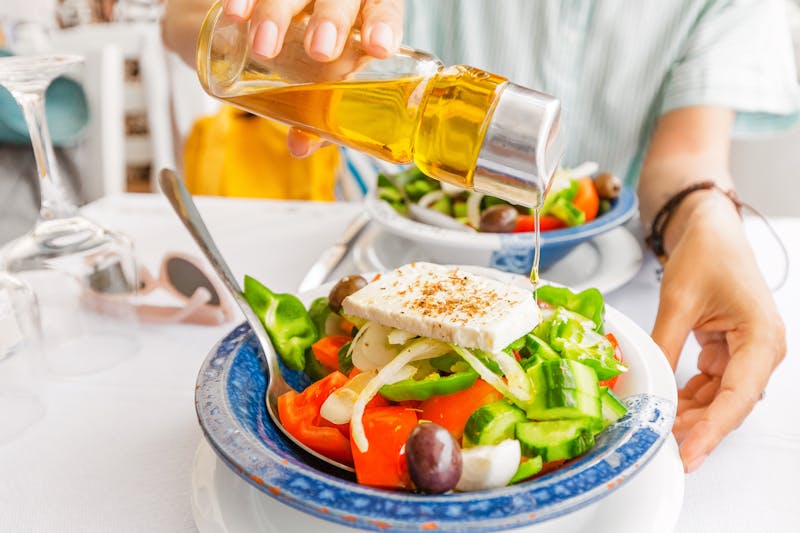



Here is a one-week sample meal plan. Feel free to substitute other foods based on what you like to eat and what’s available or in season. If you want fewer carbs, just reduce the portions of bread, grains, potatoes, rice, or fruit.
Day 1
Breakfast: Greek yogurt, oatmeal, and berries
Lunch: Bell-pepper salad with chickpeas and quinoa, dressed with olive oil.
Dinner: Grilled salmon, broccoli, and wild rice with a fresh pear for dessert.
Day 2
Breakfast: Spinach and onion frittata; melon
Lunch: Feta cheese and raw vegetables, whole-grain roll with olive oil
Dinner: Grilled chicken with basil, artichoke hearts, and potatoes; berries
Day 3
Breakfast: Ricotta cheese with chopped apples and cinnamon
Lunch: Chicken gyros on whole-wheat pita bread; orange
Dinner: Clams, mushrooms, olive oil, and garlic on whole-grain linguine
Day 4
Breakfast: Whole-grain cereal with Greek yogurt and chopped pecans
Lunch: Caprese salad, whole-grain breadsticks; figs
Dinner: Roast lamb with rosemary, couscous, asparagus, and olive oil
Day 5
Breakfast: Avocado toast with hard-boiled eggs
Lunch: Feta and quinoa stuffed bell peppers; apple
Dinner: Grilled salmon, broccoli, whole-grain pasta with garlic and olive oil; melon
Day 6
Breakfast: Greek yogurt with chopped walnuts and berries
Lunch: Leftover salmon, broccoli, and pasta
Dinner: Chicken kebabs with bell peppers and onions, wild rice; melon
Day 7
Breakfast: Spinach and mushroom omelet, whole-grain toast
Lunch: Tuna salad with couscous, greens, olive oil dressing
Dinner: Steak, olive oil-roasted Brussels sprouts, baked potato; berries
Beverages
Beverage suggestions for each day are coffee, tea or water for breakfast and lunch. Feel free to have a glass of red wine at dinner, if you desire.
Tips for dining out
Fortunately, it’s easy to eat a typical Mediterranean style meal at many restaurants. Here are some tips for dining out:
- Choose unbreaded, grilled or baked seafood, poultry, meat, or legumes with vegetables and a salad.
- Request that your food be cooked with olive oil, if possible.
- Ask for olive oil at the table to dress your salad.
- Ask for extra vegetables or salad to replace fries, or request whole grain pasta or bread rather than refined white flour versions.
- Order still or sparkling water, or enjoy a glass of red wine.
7. The history of the Mediterranean diet
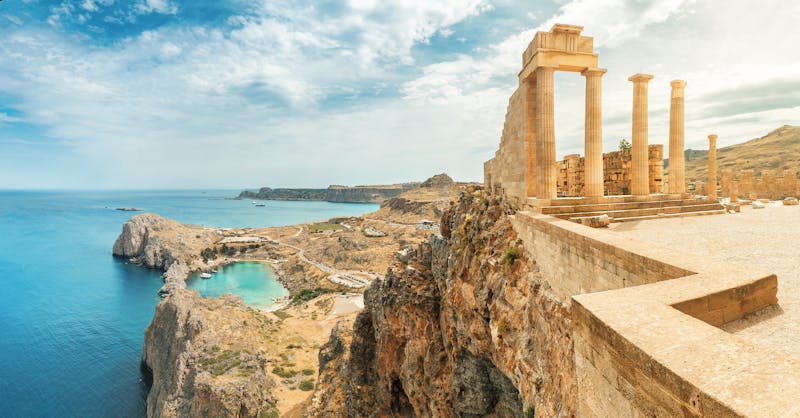



The roots of the traditional Mediterranean diet date back to the ancient Greeks and Romans, whose mainstays were bread, olive oil, and wine. They also ate many other foods, such as seasonal fruits and vegetables, legumes, cheese, fish, and meat.10
Over time, different cultures influenced what would come to be known as the traditional Mediterranean diet. Spices from the Orient and Middle East, tomatoes from America, and contributions from other lands helped shape the unique flavors and classic dishes associated with the Mediterranean diet.11
Throughout the years, Mediterranean residents tended to eat what was available to them, as many continue to do today.
In addition to plant foods, most people who follow a traditional Mediterranean diet eat some meat, along with cheese (including sheep and goat cheese) daily or several times a week. Many also consume fish and shellfish frequently, depending how far they live from the sea.12
Although their diets are similar overall, people eat different foods depending on the Mediterranean country they live in:
- Italian diets feature tomatoes, basil, garlic, cheese (mozzarella, Romano, and ricotta, among others), fish, meat, pasta, and cured meats like prosciutto and pancetta.
- Greek cuisine is rich in olives, shellfish, feta, chickpeas, onions, bread, figs, and lamb.
- Spanish diets typically include fresh shellfish, roasted meat, legumes, peppers, rice, and cured meats like ham and chorizo.
8. The Mediterranean diet research
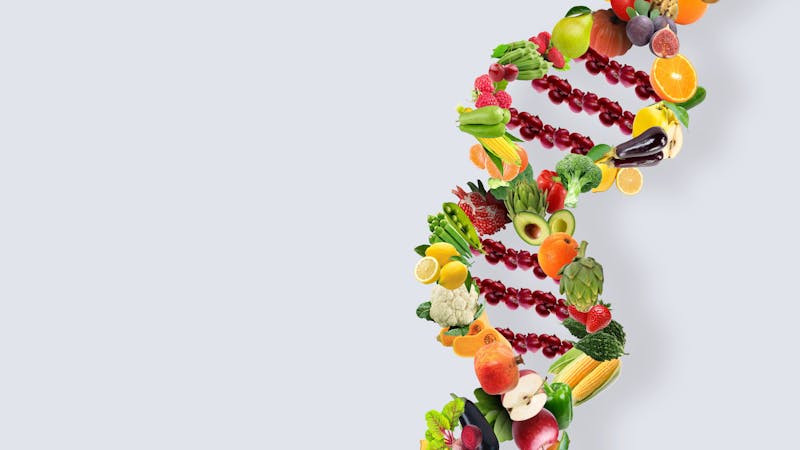



However, this type of evidence is considered very weak. Observational studies can only show associations between diets and health outcomes. They can’t prove that eating a certain way improves health or prevents disease.
Instead, it’s better to rely on results from clinical trials, especially randomized controlled trials, to assess a Mediterranean diet’s potential health benefits.
Is a Mediterranean diet effective
for weight loss?
If you want to lose weight, a Mediterranean diet may be a good option — but a low-carb Mediterranean diet is likely even better.
In a review comparing different clinical trials in adults with type 2 diabetes, people who followed a Mediterranean diet for 12 months lost an average of 13.5 pounds (6.2 kilos).14 Other studies suggest that Mediterranean diets can help people lose weight and reduce their waist size.15
One review of five Mediterranean diet trials found this dietary pattern was more effective than low-fat diets for weight loss but not more effective than low-carb diets for weight loss.16 And results from a separate trial suggest that a low-carb Mediterranean diet can help people lose more weight than a classic Mediterranean diet.
In that trial, 259 overweight people with diabetes followed a low-carb Mediterranean diet or a classic Mediterranean diet for one year. At the end of the study, people in the low-carb group lost 22 pounds (10.1 kilos), while those in the other group lost 16 pounds (7.3 kilos).17
In smaller trials, a ketogenic Mediterranean diet has shown impressive weight loss results.18 Although the evidence from these studies is considered weaker than randomized trials that have a control group, strong research shows that keto diets can help people lose weight.19
What does a ketogenic Mediterranean diet look like? In trials, people consumed meat, seafood, eggs, olive oil, cheese, above-ground vegetables, and in some cases red wine.
Is a Mediterranean diet beneficial
for heart health?
The Mediterranean diet is often described as a “heart-healthy” diet. Does it live up to this reputation? Perhaps, although some of its benefits may have been overstated.
Several trials have shown that eating a Mediterranean diet may reduce some heart disease risk factors.20
The PREDIMED trial followed more than 7,000 participants at high risk of heart disease for nearly five years. Those who were assigned to eat a Mediterranean diet (supplemented with either nuts or olive oil) had slightly better outcomes than those who followed a low-fat diet.21 22
A two-year trial in overweight people with heart disease found that losing weight on a Mediterranean diet can potentially help reduce the amount of plaque on artery walls.23
According to the authors of a 2019 study, the high intake of olive oil and nuts in Mediterranean diets seems to play a large role in reducing LDL and very low-density lipoprotein (VLDL) particles that may contribute to heart disease risk.24 However, despite encouraging results overall, a recent review of 30 trials concluded that it is unclear whether eating a Mediterranean diet helps prevent heart disease.25
Bottom line: Although the Mediterranean diet has been shown to help reduce some heart disease risk factors, more results from long-term trials are needed to reach definitive conclusions about its effects on heart health.
Does the Mediterranean diet provide other health benefits?
Following a Mediterranean diet may also improve some health conditions:
- Diabetes and prediabetes: In 2015, researchers who conducted a review of Mediterranean diet trials in people with type 2 diabetes found that they are more effective for lowering blood sugar levels than low-fat diets.26
A low-carb or keto Mediterranean diet may be even better than a classic Mediterranean diet for lowering blood sugar.27 When people with type 2 diabetes eat very low-carb diets, their blood sugar often decreases to the point that they are able to reduce or discontinue their diabetes medication.28
- Fatty liver: Results from some trials suggest that a Mediterranean diet may reduce liver fat in people with nonalcoholic fatty liver disease (NAFLD) or those at high risk for the disease.29 Low-carb and keto Mediterranean diets have been shown to dramatically reduce liver fat.30
Take home message
Mediterranean diets include a wide variety of fresh, flavorful foods such as seafood, meat, cheese, vegetables, olive oil, nuts, and berries. If you want to lose weight or control your blood sugar, you’ll likely get the best results by following a low-carb Mediterranean diet based on these foods.
Feel free to add whole grains, other starches, and higher-sugar fruits if you tolerate more carbs. However, these foods are entirely optional.
Both a low-carb and standard Mediterranean diet have been linked to potential health benefits. So if you’d like to try this way of eating, choose the one that best fits your health goals and food preferences.
Health videos
Mediterranean diet 101: a complete guide and meal plan - the evidence
This guide is written by Franziska Spritzler, RD, Dr. Bret Scher, MD and was last updated on June 19, 2025. It was medically reviewed by Dr. Bret Scher, MD on April 22, 2021.
The guide contains scientific references. You can find these in the notes throughout the text, and click the links to read the peer-reviewed scientific papers. When appropriate we include a grading of the strength of the evidence, with a link to our policy on this. Our evidence-based guides are updated at least once per year to reflect and reference the latest science on the topic.
All our evidence-based health guides are written or reviewed by medical doctors who are experts on the topic. To stay unbiased we show no ads, sell no physical products, and take no money from the industry. We're fully funded by the people, via an optional membership. Most information at Diet Doctor is free forever.
Read more about our policies and work with evidence-based guides, nutritional controversies, our editorial team, and our medical review board.
Should you find any inaccuracy in this guide, please email andreas@dietdoctor.com.
The American Journal of Medicine 2015: The Mediterranean diet, its components, and cardiovascular disease [review article; ungraded]
BMC Medicine 2014: Definitions and potential health benefits of the Mediterranean diet: views from experts around the world[review article; ungraded] ↩
The Mediterranean diet pyramid was created in 1993 by researchers from Harvard, the World Health Organization, and Oldways, a non-profit organization. ↩
On a Mediterranean diet, daily vegetable intake typically ranges from three servings (6.3 ounces, or 190 grams) to more than nine servings (17.9 ounces, or 500 grams). Similarly, seafood intake can range between two to six servings (3.5 ounces, or 100 grams each) per week:
Nutrients 2015: Definition of the Mediterranean diet; a literature review[review article; ungraded] ↩
The British Journal of Nutrition 2016: Effects of low-carbohydrate diets v. low-fat diets on body weight and cardiovascular risk factors: a meta-analysis of randomised controlled trials [strong evidence]
Diabetes Research and Clinical Practice 2017: Efficacy of low carbohydrate diet for type 2 diabetes mellitus management: A systematic review and meta-analysis of randomized controlled trials [strong evidence] ↩
A review of randomized controlled trials (RCTs) found that drinking red wine significantly reduced blood pressure and increased high-density lipoprotein (HDL) cholesterol levels (considered beneficial) in people with type 1 or type 2 diabetes:
Toxicology Research 2019: Effects of moderate red wine on cardiovascular risk factors in diabetics: a systematic review and meta-analysis of randomized controlled trials [strong evidence]
In a small study of adults with infrequent wine intake, drinking two glasses (250 ml) of wine per day for four weeks increased HDL levels and decreased several markers of inflammation:
European Journal of Clinical Nutrition 2006: Effects of moderate Sicilian red wine consumption on inflammatory biomarkers of atherosclerosis [randomized trial; moderate evidence] ↩
Public Health Nutrition 2011: Mediterranean diet pyramid today. Science and cultural updates [review article; ungraded] ↩
A review of randomized controlled trials (RCTs) found that drinking red wine significantly reduced blood pressure and increased high-density lipoprotein (HDL) cholesterol levels (considered beneficial) in people with type 1 or type 2 diabetes:
Toxicology Research 2019: Effects of moderate red wine on cardiovascular risk factors in diabetics: a systematic review and meta-analysis of randomized controlled trials [strong evidence]
In a small study of adults with infrequent wine intake, drinking two glasses (250 ml) of wine per day for four weeks increased HDL levels and decreased several markers of inflammation:
European Journal of Clinical Nutrition 2006: Effects of moderate Sicilian red wine consumption on inflammatory biomarkers of atherosclerosis [randomized trial; moderate evidence] ↩
Public Health Nutrition 2011: Mediterranean diet pyramid today. Science and cultural updates [review article; ungraded] ↩
After studying the dietary habits of residents in several countries for more than 20 years, Ancel Keys published his research as the Seven Countries Study, in which he linked traditional Greek and southern Italian dietary patterns to lower rates of heart disease and mortality:
Journal of Cardiovascular Risk 1995: Seven Countries Study. First 20-year mortality data in 12 cohorts of six countries[observational study; very weak evidence]
American Journal of Epidemiology 1986: The diet and 15-year death rate in the seven countries study
[observational study; very weak evidence] ↩Maturitas 2020: The Mediterranean diet: A historical perspective on food for health[review article; ungraded] ↩
Maturitas 2020: The Mediterranean diet: A historical perspective on food for health[review article; ungraded] ↩
Maturitas 2020: The Mediterranean diet: A historical perspective on food for health[review article; ungraded]
BMC Medicine 2014: Definitions and potential health benefits of the Mediterranean diet: views from experts around the world[review article; ungraded] ↩
This includes older research like the Seven Countries Study, which found that traditional Greek and Italian dietary patterns were associated with lower rates of heart disease and mortality:
Journal of Cardiovascular Risk 1995: Seven Countries Study. First 20-year mortality data in 12 cohorts of six countries [observational study; very weak evidence]Several recent observational studies have also linked the Mediterranean diet to a lower risk of disease and death.
A 2019 review of observational studies found an inverse association between the Mediterranean diet and heart disease and ischemic stroke:
The European Journal of Nutrition 2019: Mediterranean diet and cardiovascular disease: a systematic review and meta-analysis of observational studies [observational study; very weak evidence]
A 2018 review of observational studies found an inverse association between the Mediterranean diet and all-cause mortality:
The British Journal of Nutrition 2018: Mediterranean diet and its components in relation to all-cause mortality: meta-analysis
[observational study; very weak evidence]A 2017 review of observational studies found an inverse association between the Mediterranean diet and cancer risk:
Nutrients 2017: Adherence to Mediterranean diet and risk of cancer: an updated systematic review and meta-analysis
[observational study; very weak evidence] ↩Journal of the Academy of Nutrition and Dietetics 2015: Lifestyle weight-loss intervention outcomes in overweight and obese adults with type 2 diabetes: a systematic review and meta-analysis of randomized clinical trials [strong evidence] ↩
In one trial, people who followed a Mediterranean diet lost up to 7.5 pounds (3.4 kilos) and 2.74% of their body fat in four weeks:
Journal of Translational Medicine 2018: Influence of FTO rs9939609 and Mediterranean diet on body composition and weight loss: a randomized clinical trial [randomized trial; moderate evidence]
A 2018 review looked at several trials that tested a Mediterranean diet for weight loss.
In 13 of 18 trials, people who were assigned to follow a Mediterranean diet lost an average of four inches (10 cm) from around their waist.However, seven of the trials restricted calories, and only three of those trials reported significantly greater weight loss in the Mediterranean diet groups compared to the calorie-restricted control groups:
Critical reviews in food science and nutrition 2018: Central obesity and the Mediterranean diet: A systematic review of intervention trials [strong evidence] ↩
The American Journal of Medicine 2016: Systematic review of the Mediterranean diet for long-term weight loss [strong evidence] ↩
Diabetes, Obesity & Metabolism 2010: A low carbohydrate Mediterranean diet improves cardiovascular risk factors and diabetes control among overweight patients with type 2 diabetes mellitus: a 1-year prospective randomized intervention study [randomized trial; moderate evidence] ↩
In a 2011 trial, Spanish researchers studied the effects of a non-calorie-restricted Mediterranean ketogenic diet in 22 people with metabolic syndrome. After 12 weeks, participants had lost an average of 32 pounds (14.5 kilos) and nearly seven inches (17 cm) from around their waist:
Journal of Medicinal Food 2011: A pilot study of the Spanish Ketogenic Mediterranean Diet: an effective therapy for the metabolic syndrome [non-randomized trial; weak evidence]
In a 2011 trial, Italian researchers tested a non-calorie-restricted ketogenic Mediterranean diet in 106 overweight adults for six weeks. By the end of the study, participants had lost an average of 14.8 pounds (6.7 kilos) and 3.8 inches (9.6 cm) from around their waist:
Nutrition Journal 2011: Effect of ketogenic Mediterranean diet with phytoextracts and low carbohydrates/high-protein meals on weight, cardiovascular risk factors, body composition and diet compliance in Italian council employees [non-controlled trial; weak evidence]
In 2013, the same researchers tested a cyclical ketogenic Mediterranean diet in 89 overweight adults for one year. By the end of the study, participants had lost an average of 35 pounds (16 kilos) and 10% of their body fat. Of note, the standard Mediterranean diet periods totaled eight months, the ketogenic diet periods totaled 40 days, and the low-carb diet period lasted 20 days:
Nutrients 2013: Long term successful weight loss with a combination biphasic ketogenic Mediterranean diet and Mediterranean diet maintenance protocol
[non-controlled trial; weak evidence] ↩Of 16 randomized trials lasting between eight weeks and two years that were included in several systematic review, eight of the nine keto or very-low-carb diets led to significantly greater weight loss than other diets:
PLoS One 2015: Dietary intervention for overweight and obese adults: Comparison of low-carbohydrate and low-fat diets. A meta-analysis [systematic review of randomized trials; strong evidence]
The British Journal of Nutrition 2016 Effects of low-carbohydrate diets v. low-fat diets on body weight and cardiovascular risk factors: a meta-analysis of randomised controlled trials [strong evidence]
Obesity Reviews 2016: Impact of low-carbohydrate diet on body composition: meta-analysis of randomized controlled studies [strong evidence] ↩
In one trial, 805 adults with type 2 diabetes or prediabetes followed either a Mediterranean diet high in olive oil or a low-fat diet. By the end of the study, those in the Mediterranean diet had greater improvement in arterial function compared to the low-fat diet group:
Atherosclerosis 2018: Mediterranean diet improves endothelial function in patients with diabetes and prediabetes: A report from the CORDIOPREV study [randomized trial; moderate evidence]
In a 2020 trial, people with excess belly fat at increased risk of heart disease followed a standard Mediterranean diet, a “green” Mediterranean diet that included green tea and a plant-based protein shake, or conventional dietary guidance for six months.
Although both Mediterranean diet groups lost more weight than the control group, the “green” Mediterranean group had the largest reductions in low-density lipoprotein (LDL) cholesterol, blood pressure, and other heart disease risk factors:
BMJ Journals 2020: The effect of green Mediterranean diet on cardiometabolic risk; a randomised controlled trial [randomized trial; moderate evidence] ↩
The PREDIMED study was originally published in 2016, retracted, and republished in 2018. There were irregularities in this study’s randomization, but most authorities believe it does not impact the validity of the results. ↩
By the end of the trial, heart attacks or strokes occurred in 83 people who ate a Mediterranean diet supplemented with nuts, 96 people who ate a Mediterranean diet supplemented with extra-virgin oil, and 109 people who ate a low-fat diet:
The New England Journal of Medicine 2018: Primary prevention of cardiovascular disease with a Mediterranean diet supplemented with extra-virgin olive oil or nuts [randomized trial; moderate evidence]
In separate analyses of some PREDIMED trial participants, those who ate a Mediterranean diet supplemented with olive oil experienced improvements in HDL function, LDL oxidation, and LDL particle size:
Circulation 2017: Mediterranean diet improves high-density lipoprotein function in high-cardiovascular-risk individuals: a randomized controlled trial [randomized trial; moderate evidence]
Molecular Nutrition & Food Research 2017: The Mediterranean Diet decreases LDL atherogenicity in high cardiovascular risk individuals: a randomized controlled trial [randomized trial; moderate evidence] ↩
In this study, researchers tracked signs of carotid atherosclerosis (fatty deposits in the carotid arteries) over two years in people who ate a Mediterranean diet, a low-carb diet, or a low-fat diet. By the end of the trial, there was significant regression of measurable carotid artery wall volume in all three diet groups, implying a reduction of atherosclerosis. According to the researchers, the improvement was likely due to loss of weight and reduced blood pressure, resulting from the dietary changes:
Circulation 2010: Dietary intervention to reverse carotid atherosclerosis [randomized trial; moderate evidence] ↩
Molecular Nutrition and Food Research 2019: Disentangling the effects of monounsaturated fatty acids from other components of a Mediterranean diet on serum metabolite profiles: A randomized fully controlled dietary intervention in healthy subjects at risk of the metabolic syndrome [randomized trial; moderate evidence] ↩
Cochrane Database of Systematic Reviews 2019: Mediterranean-style diet for the primary and secondary prevention of cardiovascular disease [systematic review of randomized trials; strong evidence] ↩
BMJ Open 2015: A journey into a Mediterranean diet and type 2 diabetes: a systematic review with meta-analyses [strong evidence] ↩
In a 12-month trial of overweight adults with type 2 diabetes, those who ate a low-carb Mediterranean diet reduced their HbA1c by 2%:Diabetes, Obesity & Metabolism 2010: A low carbohydrate Mediterranean diet improves cardiovascular risk factors and diabetes control among overweight patients with type 2 diabetes mellitus: a 1-year prospective randomized intervention study [randomized trial; moderate evidence]
In a 2011 trial, 22 people with metabolic syndrome who followed a Mediterranean ketogenic diet for 12 weeks reduced their fasting blood sugar by 27 mg/dL, on average:
Journal of Medicinal Food 2011: A pilot study of the Spanish Ketogenic Mediterranean Diet: an effective therapy for the metabolic syndrome [non-randomized trial; weak evidence] ↩This has been demonstrated in several clinical trials:
Cureus 2020: Effects of the ketogenic diet on glycemic control in diabetic patients: Meta-analysis of clinical trials [strong evidence]
In one trial of adults with type 2 diabetes, who followed a very low-carb diet for 16 weeks, 95% of participants discontinued or reduced the dosages of their insulin and other diabetes medications:
Nutrition and Metabolism 2008: The effect of a low-carbohydrate, ketogenic diet versus a low-glycemic index diet on glycemic control in type 2 diabetes mellitus [randomized trial; moderate evidence]
In a two-year trial, people with type 2 diabetes who ate a keto diet reduced their HbA1c by an average of 0.9%, and 67% of participants were able to eliminate insulin and oral diabetes medications (other than metformin) altogether.
For those who still used insulin or other diabetes medications after two years, dosages were greatly reduced:
Frontiers in Endocrinology 2019: Long-term effects of a novel continuous remote care intervention including nutritional ketosis for the management of type 2 diabetes: A two-year non-randomized clinical trial [non-randomized study; weak evidence] ↩
In a small trial from 2013, people with NAFLD experienced a reduction in liver fat and improved insulin sensitivity after eating a Mediterranean diet for six weeks, despite no significant changes in body weight:Journal of Hepatology 2013: The Mediterranean diet improves hepatic steatosis and insulin sensitivity in individuals with non-alcoholic fatty liver disease [randomized trial; moderate evidence]In another trial, 98 people with NAFLD were assigned to follow a low-glycemic index Mediterranean diet or a control diet. Those in the Mediterranean diet group had a greater reduction in their NAFLD score compared to those in the control group:
Journal of Nutrition, Health and Aging 2017:Effect of a low glycemic Index Mediterranean diet on non-alcoholic fatty liver disease. A randomized controlled clinical trial [randomized trial; moderate evidence] ↩
In an 18-month trial, 278 people with excess liver fat were assigned to eat either a low-fat diet or a low-carb Mediterranean diet. By the end of the study, those in the Mediterranean diet group reduced their liver fat significantly more than those in the low-fat group:
Journal of Hepatology 2019: The beneficial effects of Mediterranean diet over low-fat diet may be mediated by decreasing hepatic fat content [randomized trial; moderate evidence]
In a 12-week study of people with metabolic syndrome and NAFLD, who followed a Mediterranean ketogenic diet, 13 of 14 people had a significant decrease in liver fat levels, and three had a complete resolution of NAFLD:
Journal of Medicinal Food 2011: The effect of the Spanish Ketogenic Mediterranean diet on nonalcoholic fatty liver disease: A pilot study [non-randomized trial; weak evidence] ↩
